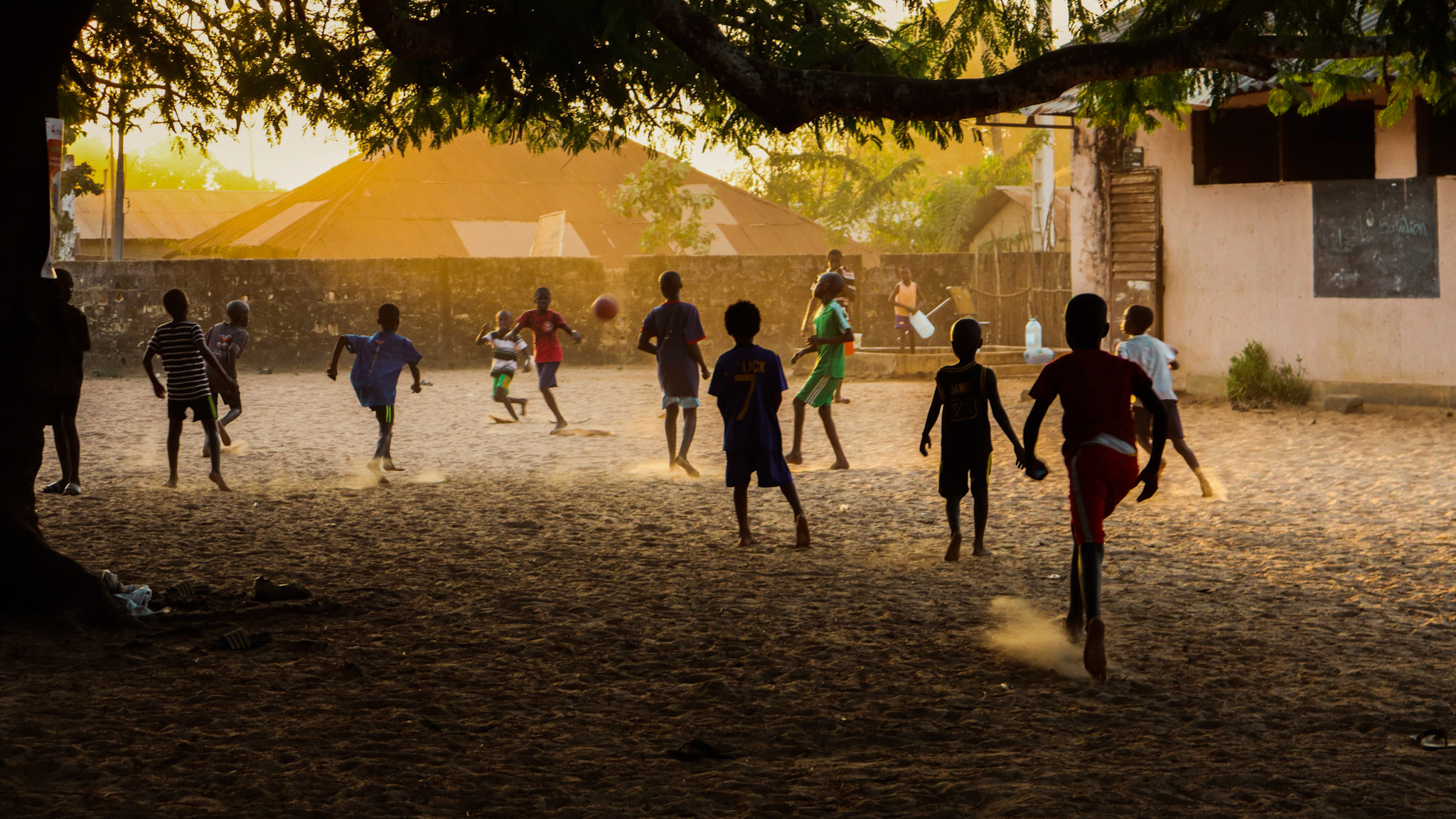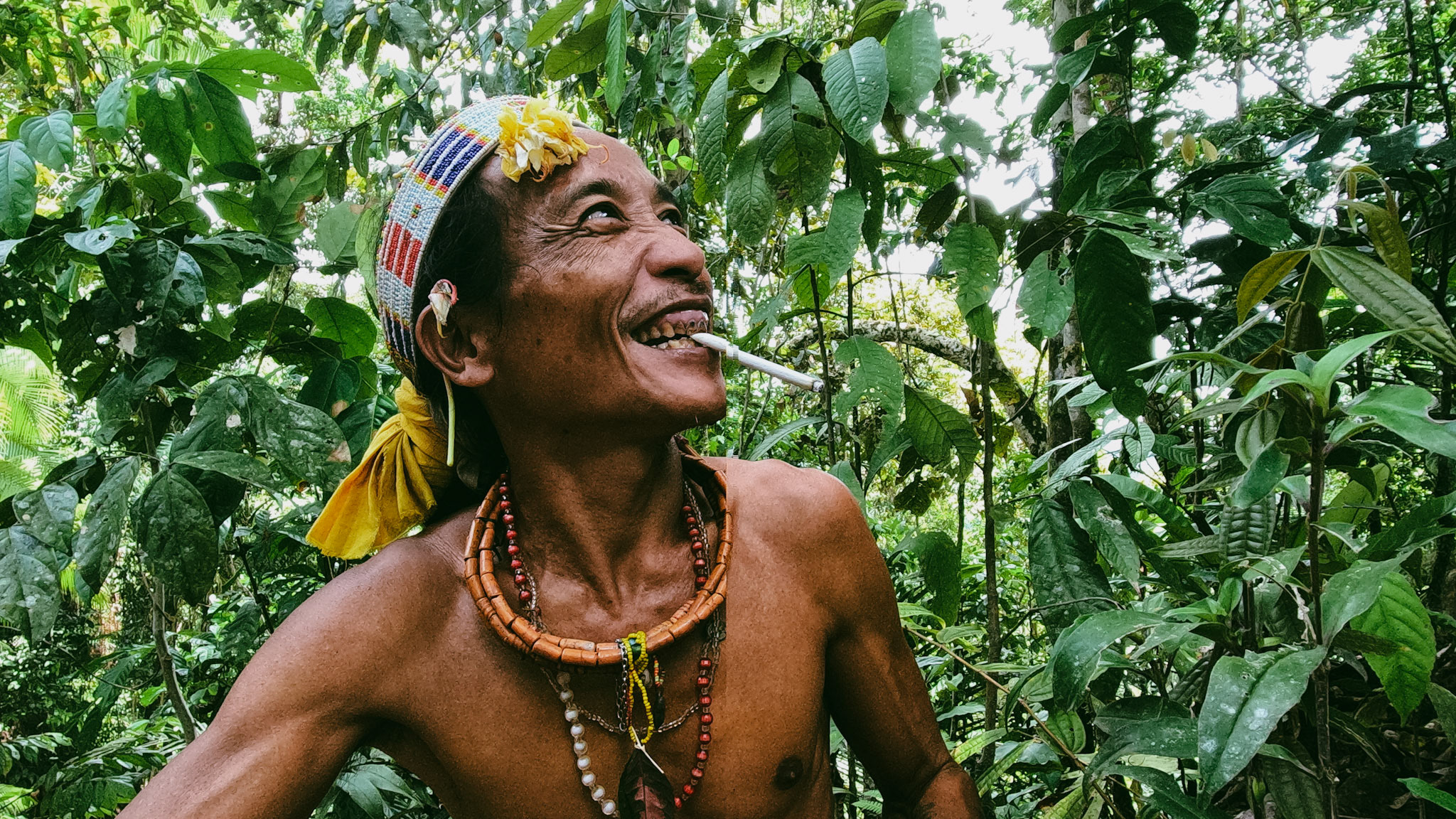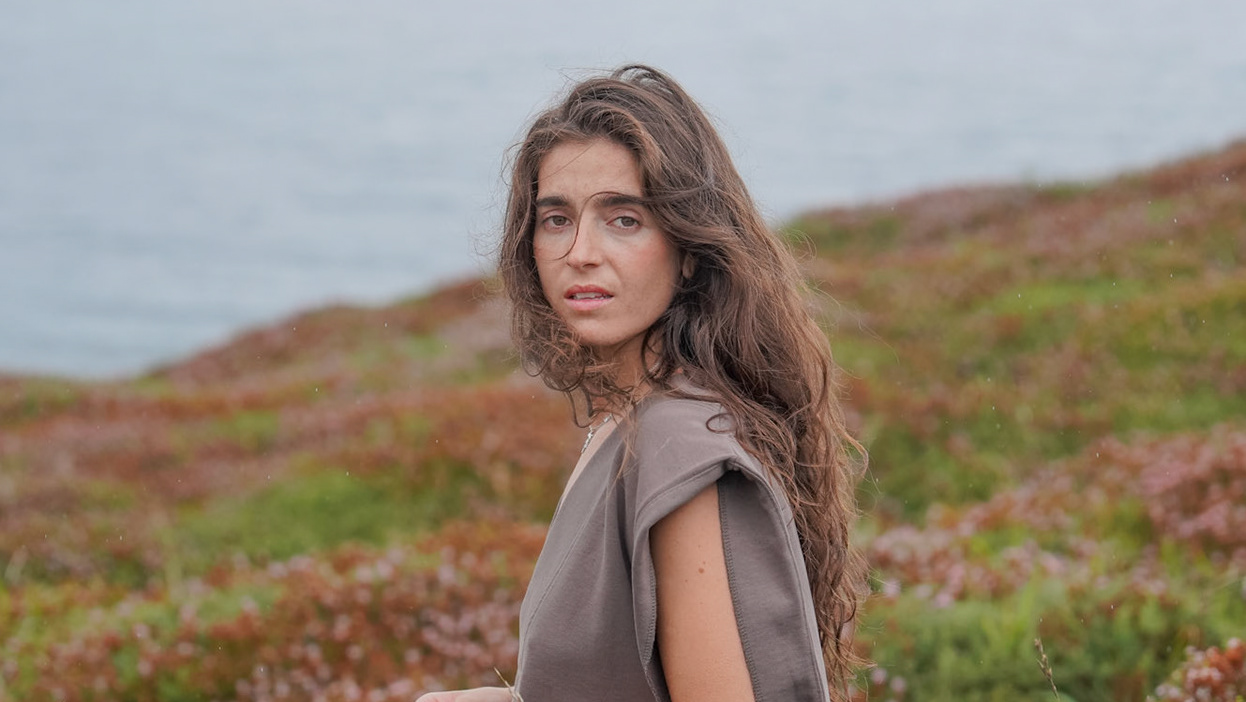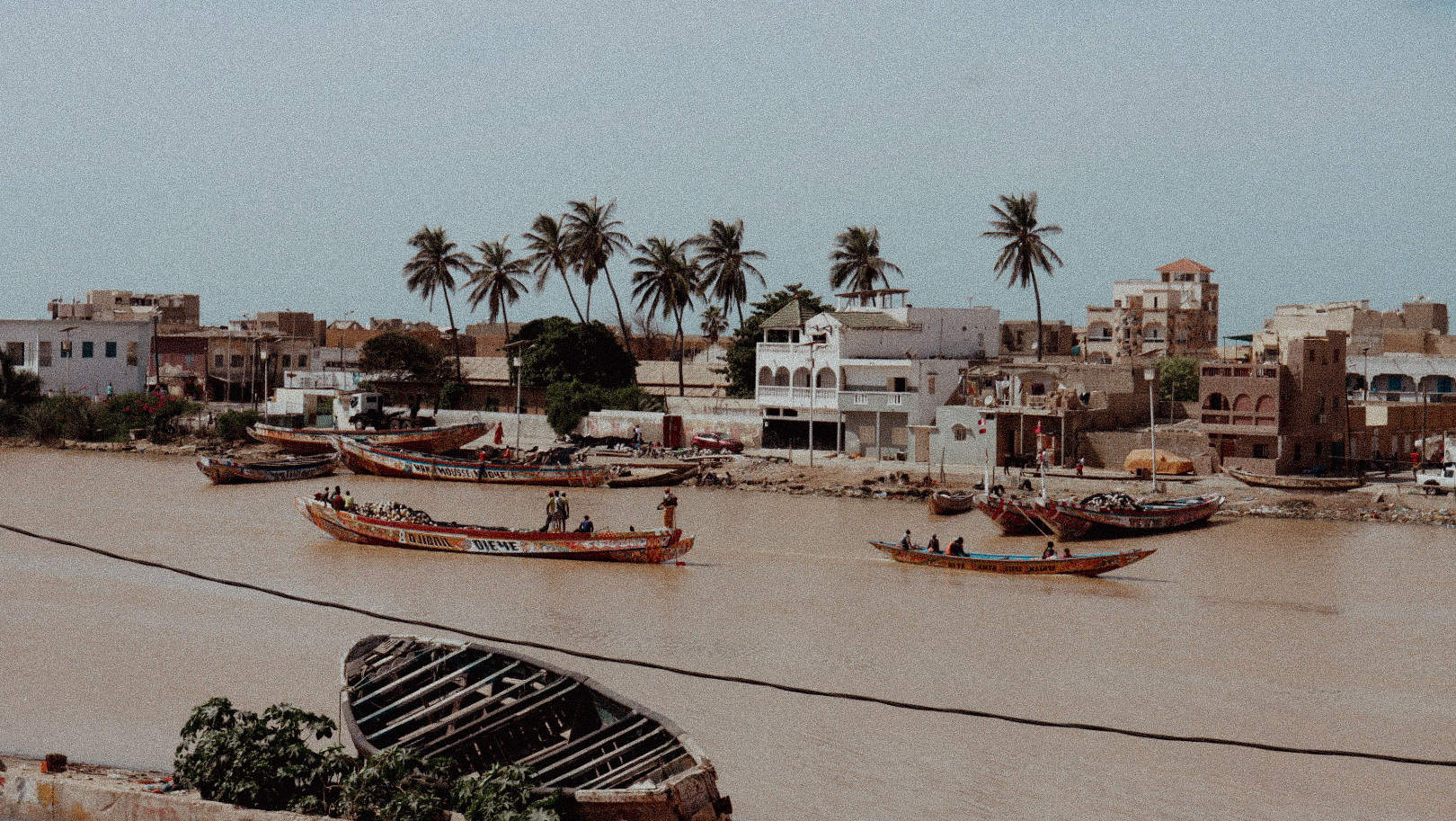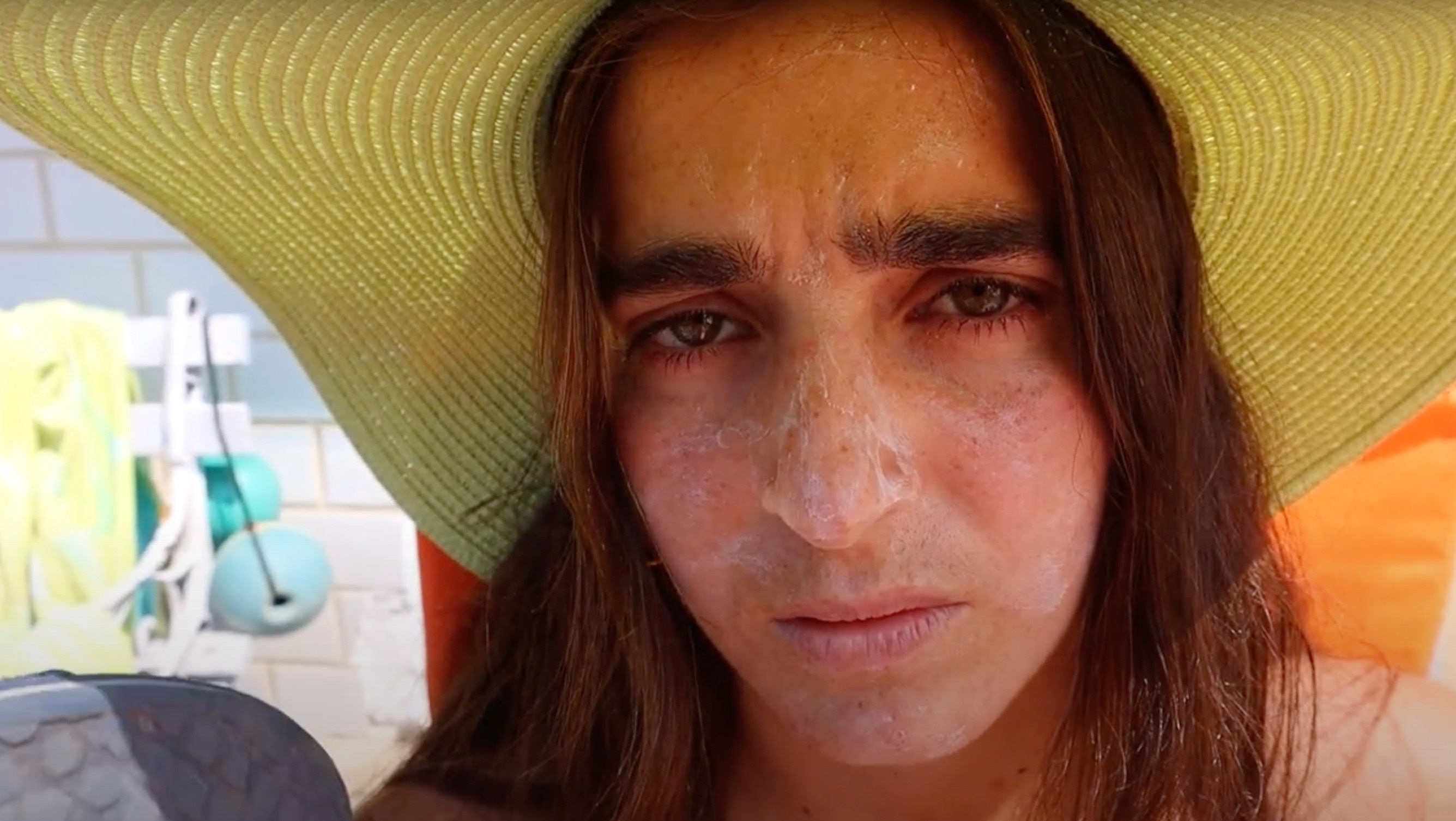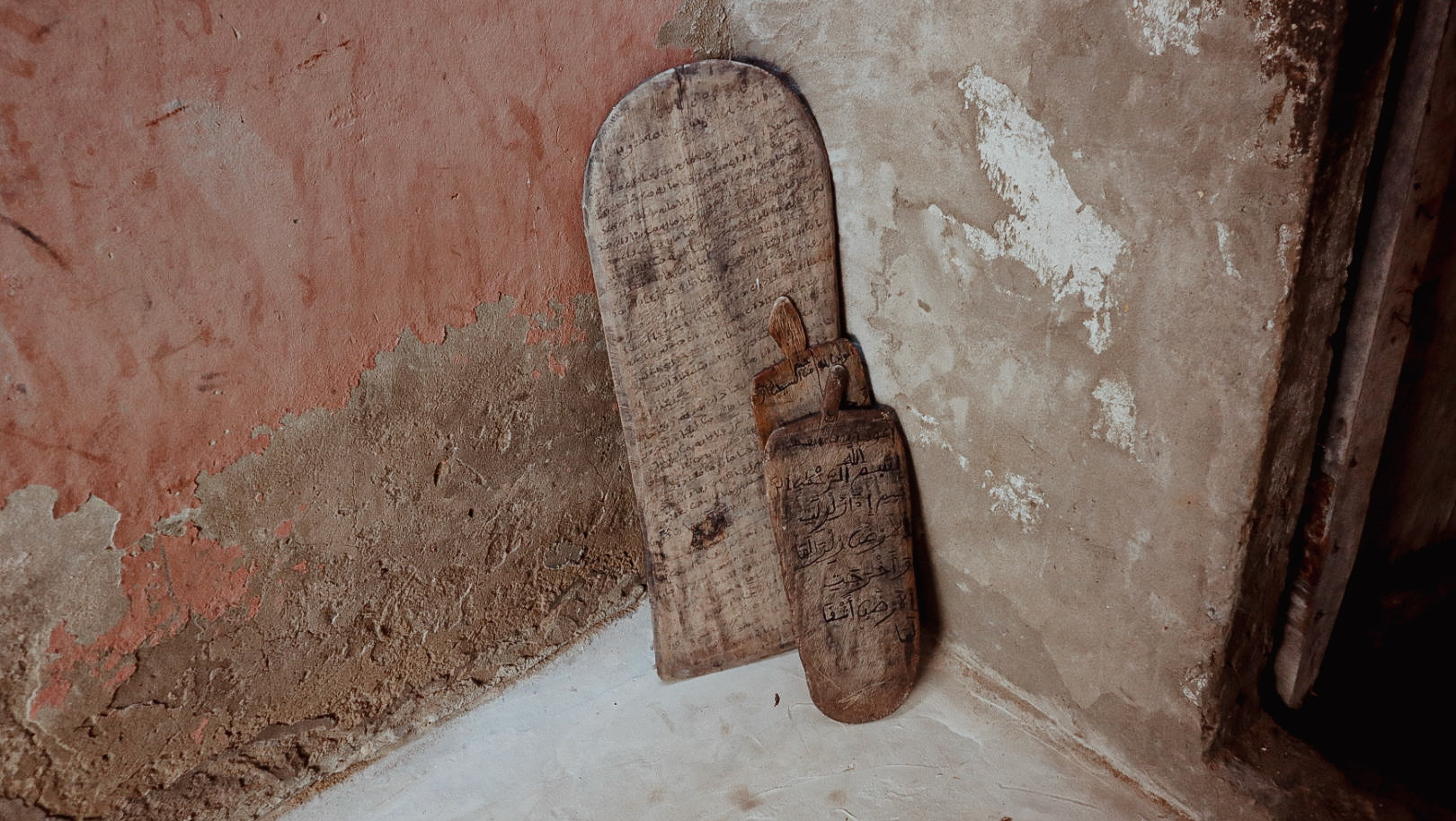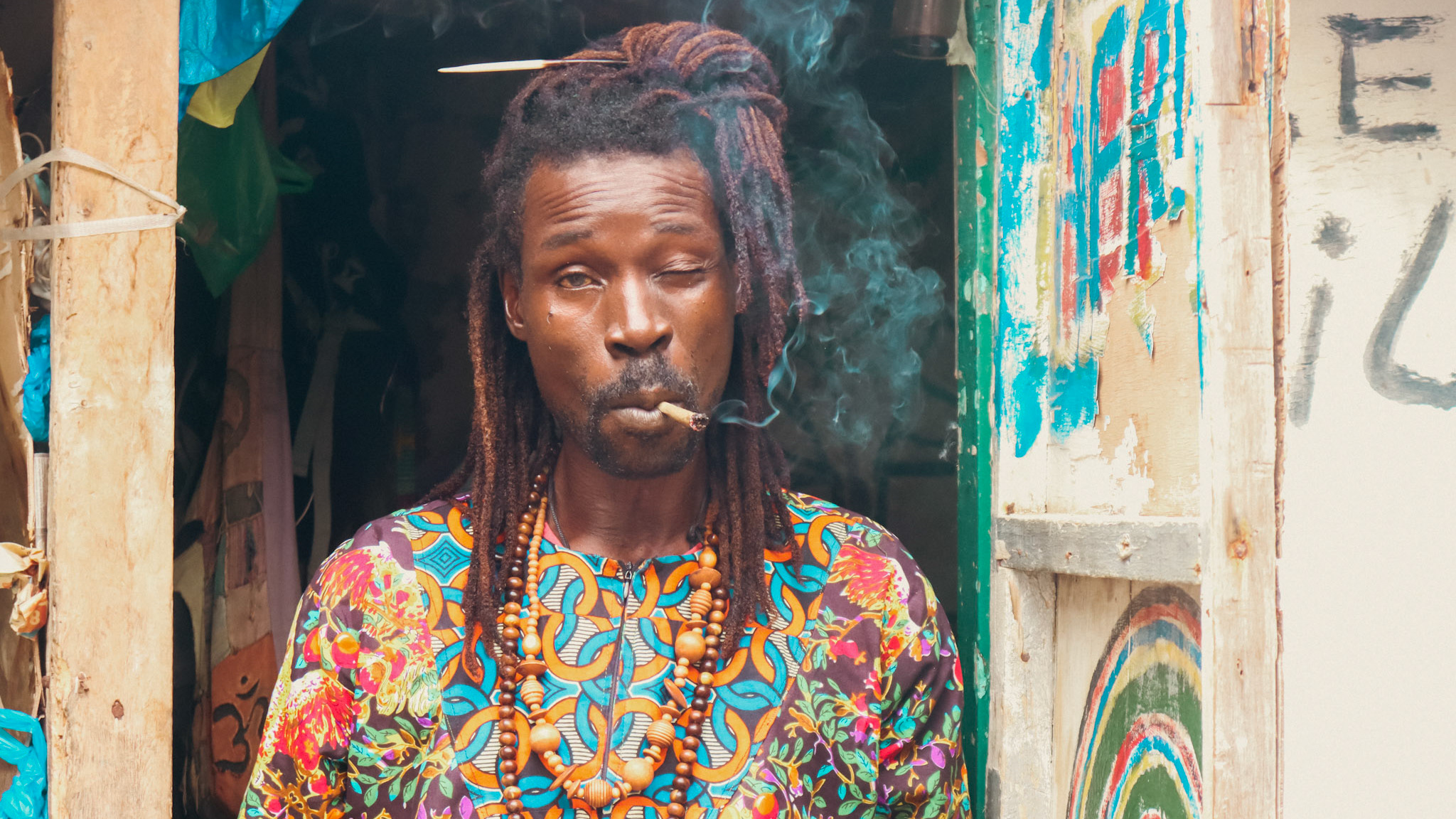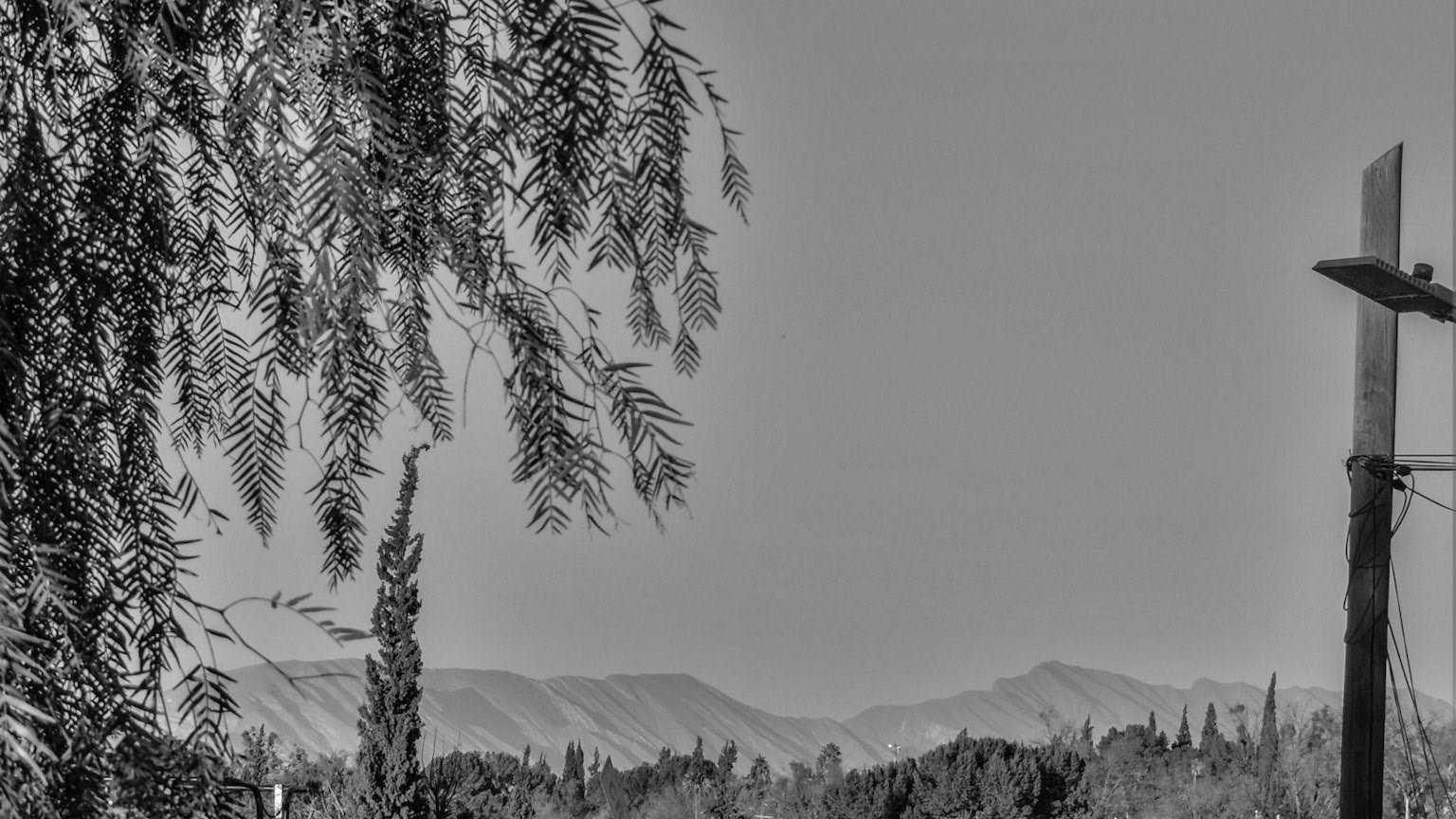What effect does the fact that supermarkets in wester countries offer all kinds of fresh fish every day of the year have on these communities?
We decided to head to Cape Verde to learn from the local fishermen since most of these communities live from sustainable fishing.
Although fishing has decreased quantitatively in the last decades, we wanted to find out if the fishing agreements between Cape Verde and other countries (China, Europe,...) still leave room for local communities to make a living from sustainable fishing.
In countries like Senegal, due to the plague of European fishing boats in their waters, most of their population has been forced to migrate.
nelson,
bottom fishing
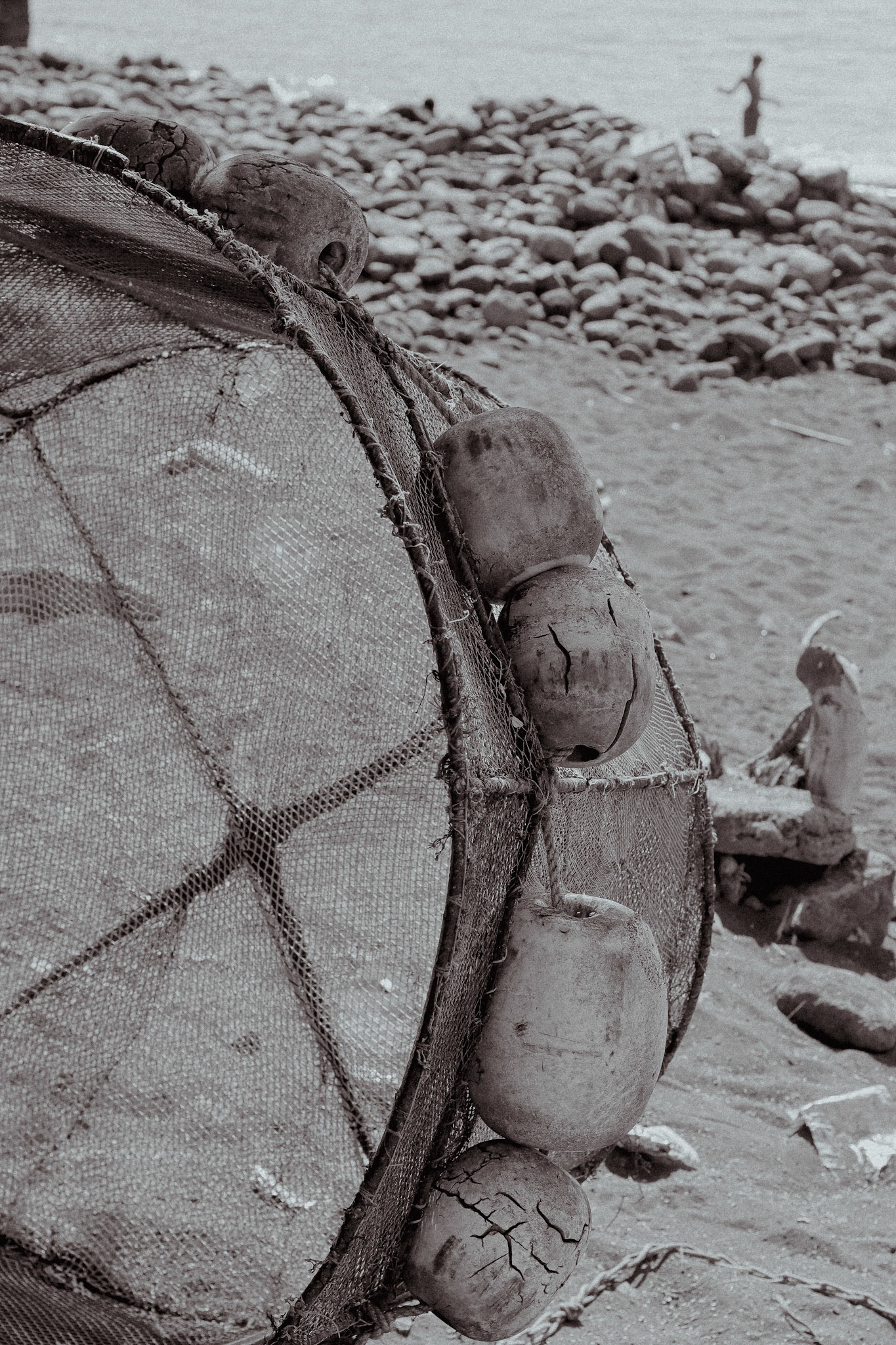
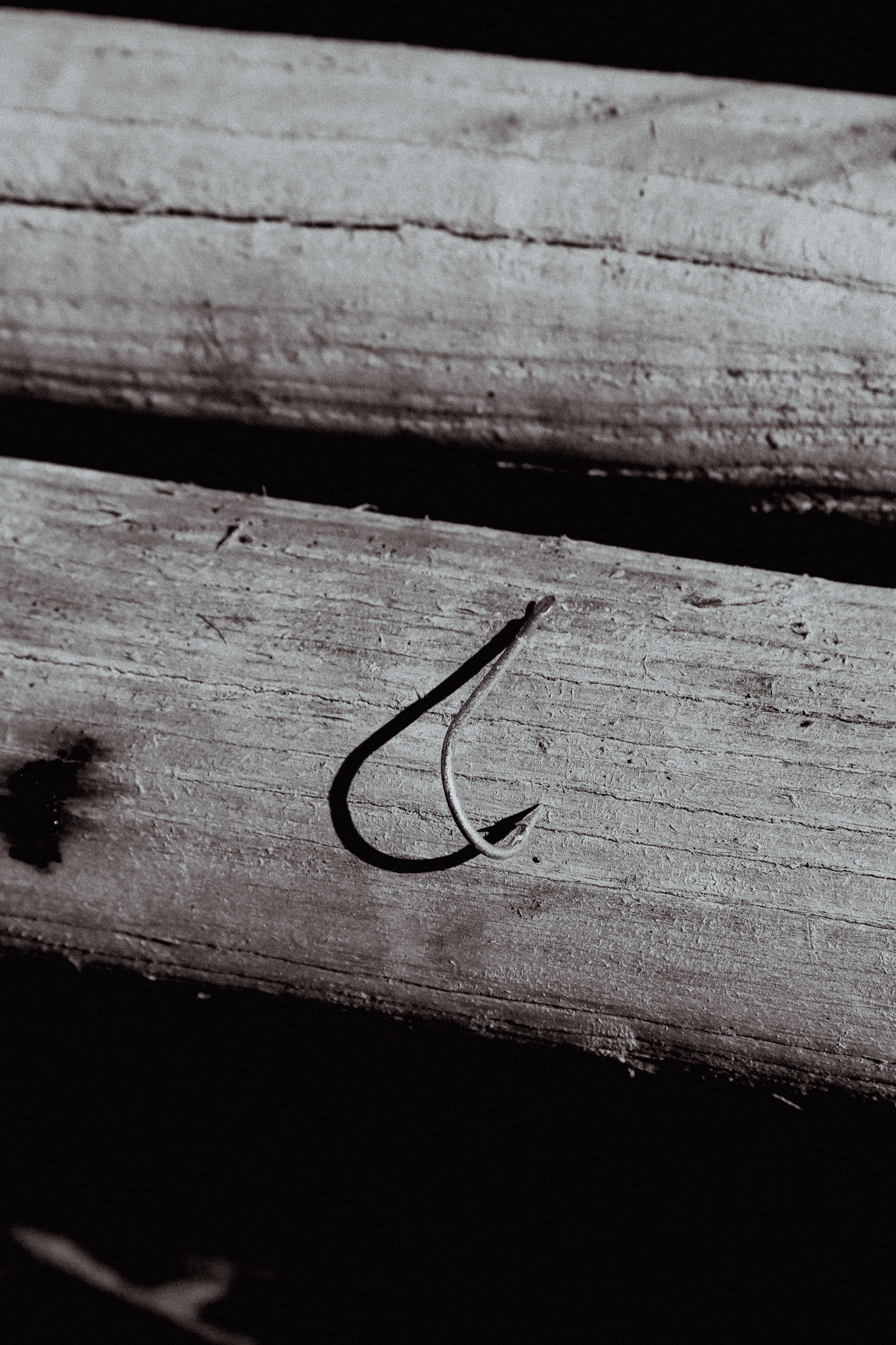
After a couple of days of travel, we arrived in Tarrafal, an idyllic fishing village at the edge of a paradisiacal black sand beach. Starving, we stopped for lunch in a small wooden hut in front of the sea, and there we met Nelson, a 39 year old local man who has been a fisherman all his life.
Nelson told us that in Tarrafal they live from fishing and agriculture. He, like all the men in the village, is a fisherman, and the women are in charge of cooking and taking care of the house.
"Fishing is our life and without fishing, we would starve , being forced to migrate. We fish for a living.
In Tarrafal and Cape Verrde there is a lot of fish, a lot, a lot. We mostly eat it here but when we need more money we take it to Mindelo, one of the capitals of the country, and we sell it.
We will always have buyers since the Spanish multinational Frescomar is here, and exports all over Europe. "
Unlike other countries like Senegal, there are hardly any foreign multinational boats in these waters, sometimes there are Chinese fishing shark but it's all for them here.
Three years ago it started to happen like in Senegal, many boats from other countries arrived and we noticed the drop in fishing."
He told us that fishermen from several islands got together and demanded the government to stop granting agreements. Thanks to this movement, they can continue to make a living out of fishing.
Nelson told us that in Tarrafal they live from fishing and agriculture. He, like all the men in the village, is a fisherman, and the women are in charge of cooking and taking care of the house.
"Fishing is our life and without fishing, we would starve , being forced to migrate. We fish for a living.
In Tarrafal and Cape Verrde there is a lot of fish, a lot, a lot. We mostly eat it here but when we need more money we take it to Mindelo, one of the capitals of the country, and we sell it.
We will always have buyers since the Spanish multinational Frescomar is here, and exports all over Europe. "
Unlike other countries like Senegal, there are hardly any foreign multinational boats in these waters, sometimes there are Chinese fishing shark but it's all for them here.
Three years ago it started to happen like in Senegal, many boats from other countries arrived and we noticed the drop in fishing."
He told us that fishermen from several islands got together and demanded the government to stop granting agreements. Thanks to this movement, they can continue to make a living out of fishing.
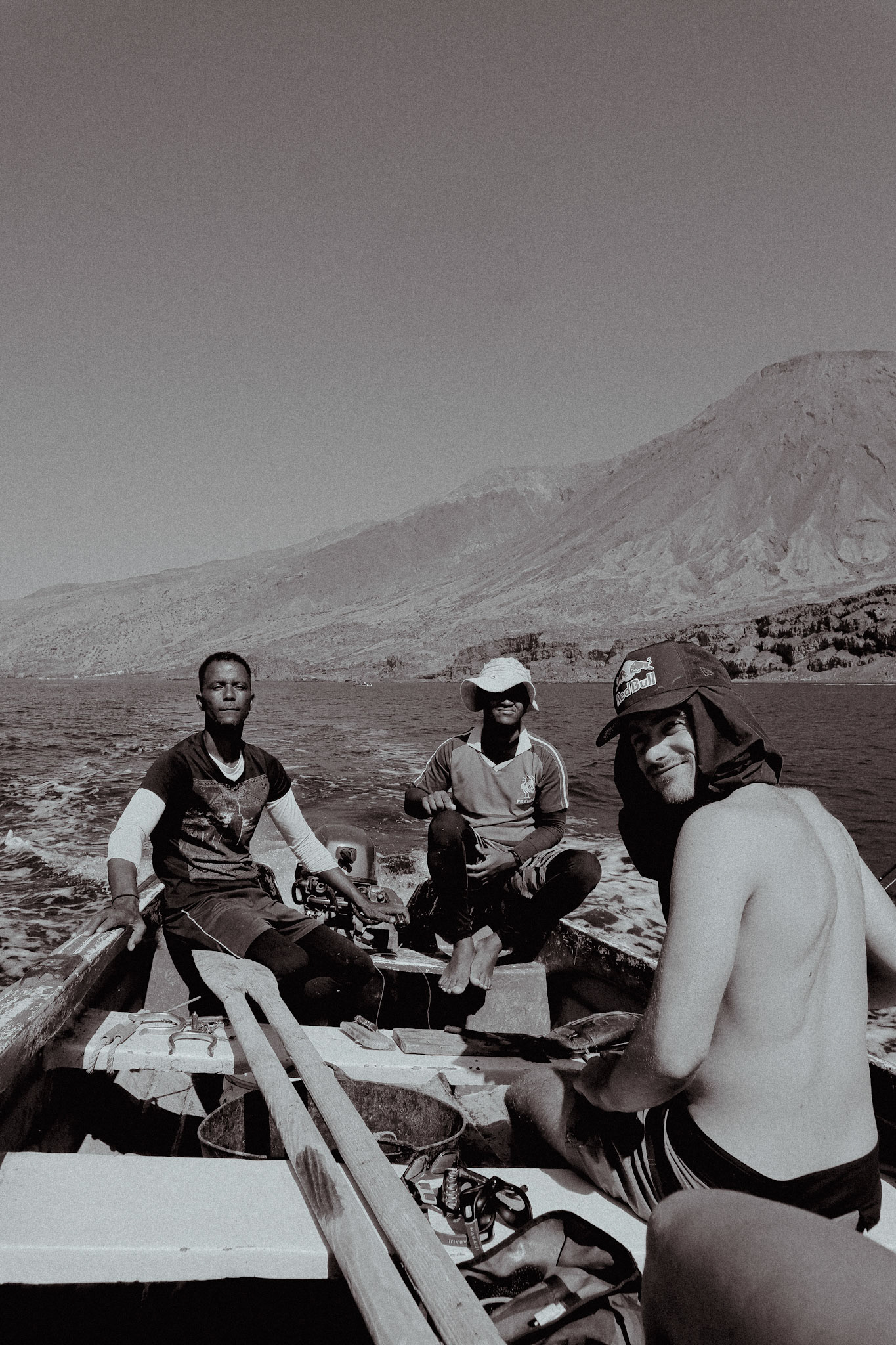
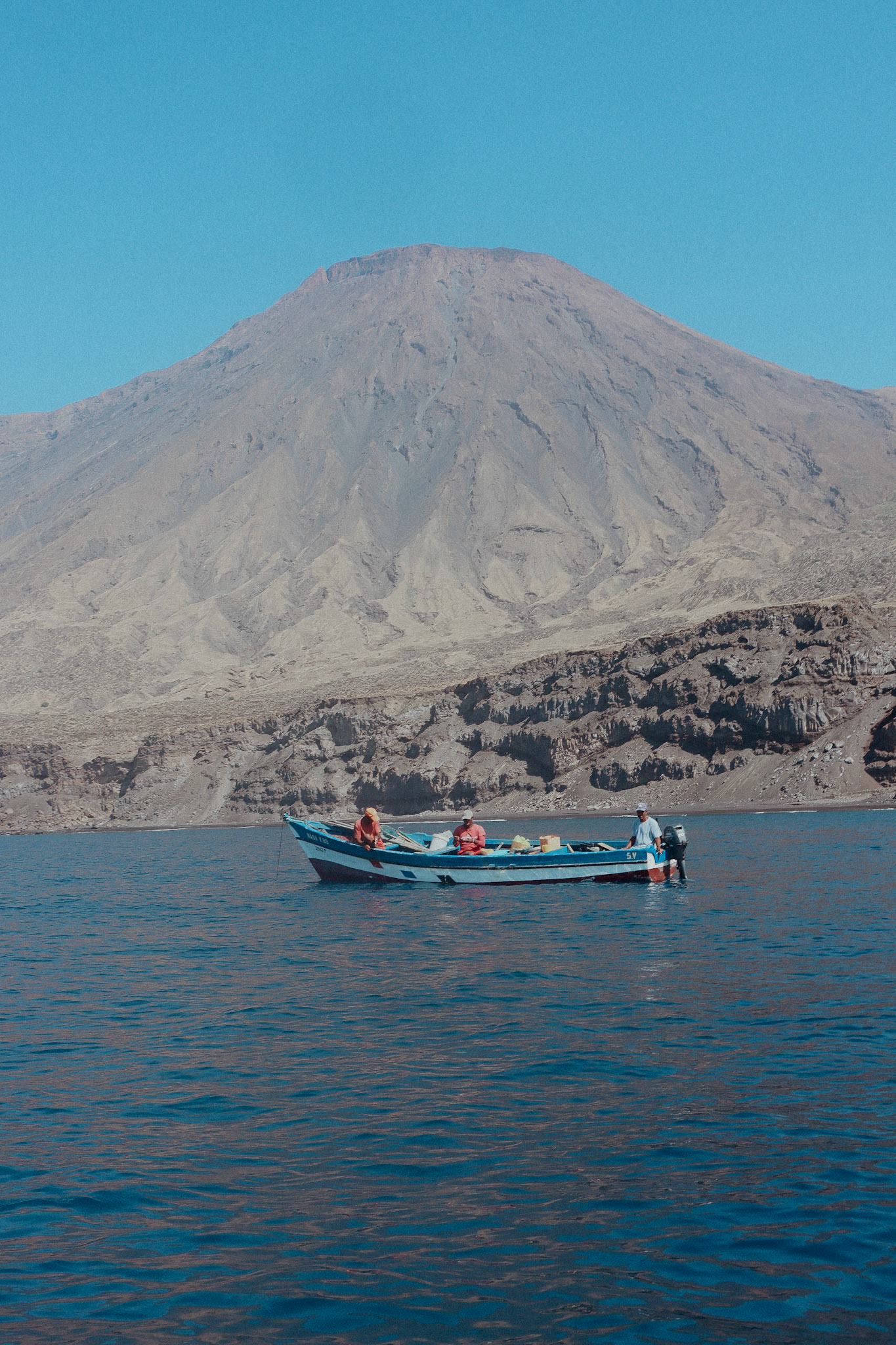
Nelson took us out fishing with his captain. He was the first to show us one of the most common fishing techniques in Cape Verde. Bottom fishing for garopa, the most common fish here, It is a bottom fish that, although not very big, is one of the most tasty to eat. We got into a small wooden boat and sailed close to coast. Once we reached an idyllic place with pristine water under one of the highest volcanoes in Cape Verde, we started to cast. Natxo was totally excited and prepared with his rod and lures. However, with a much more austere material (a pita, a hook and pieces of raw fish) they managed to catch much more fish.
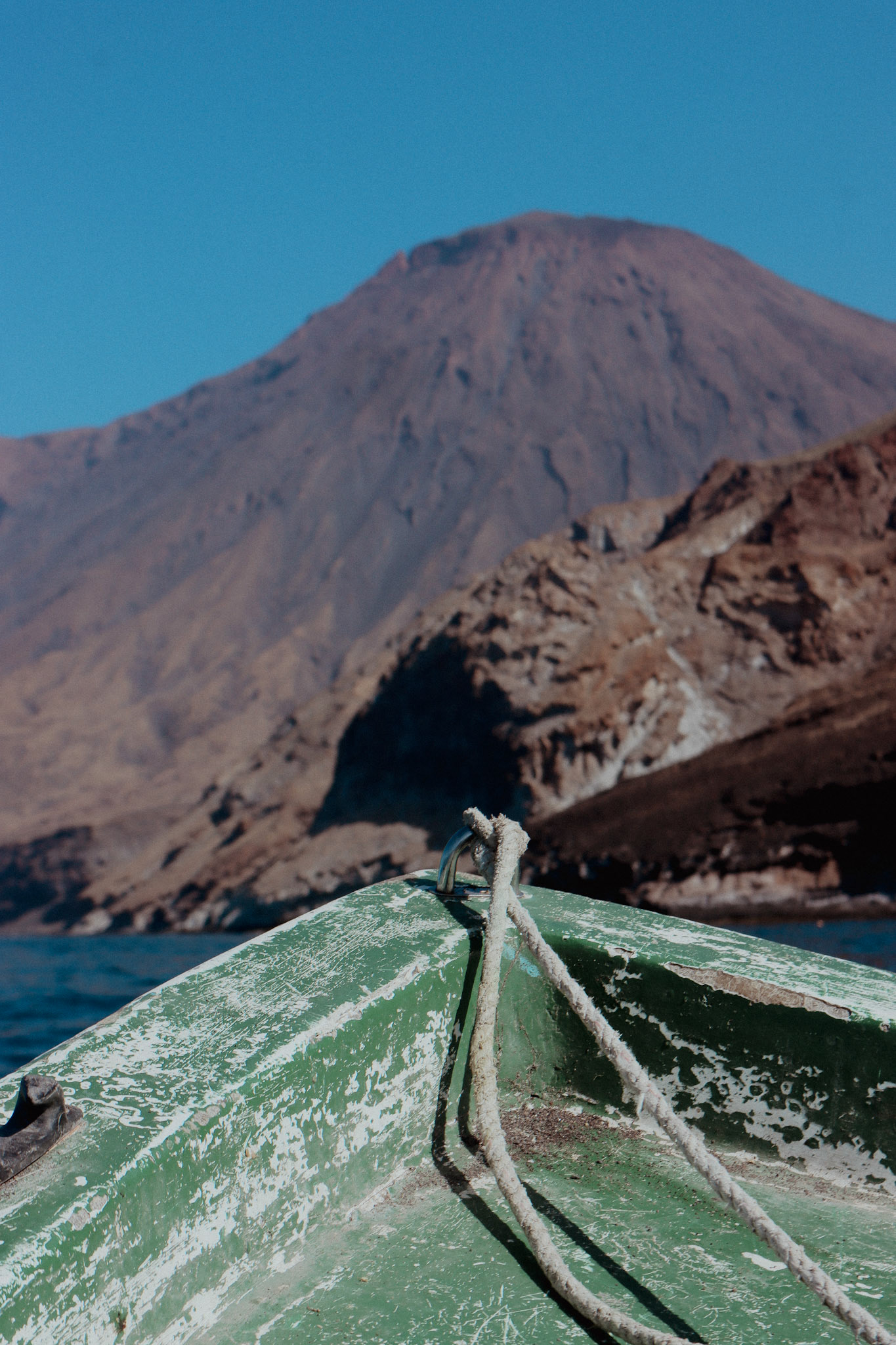
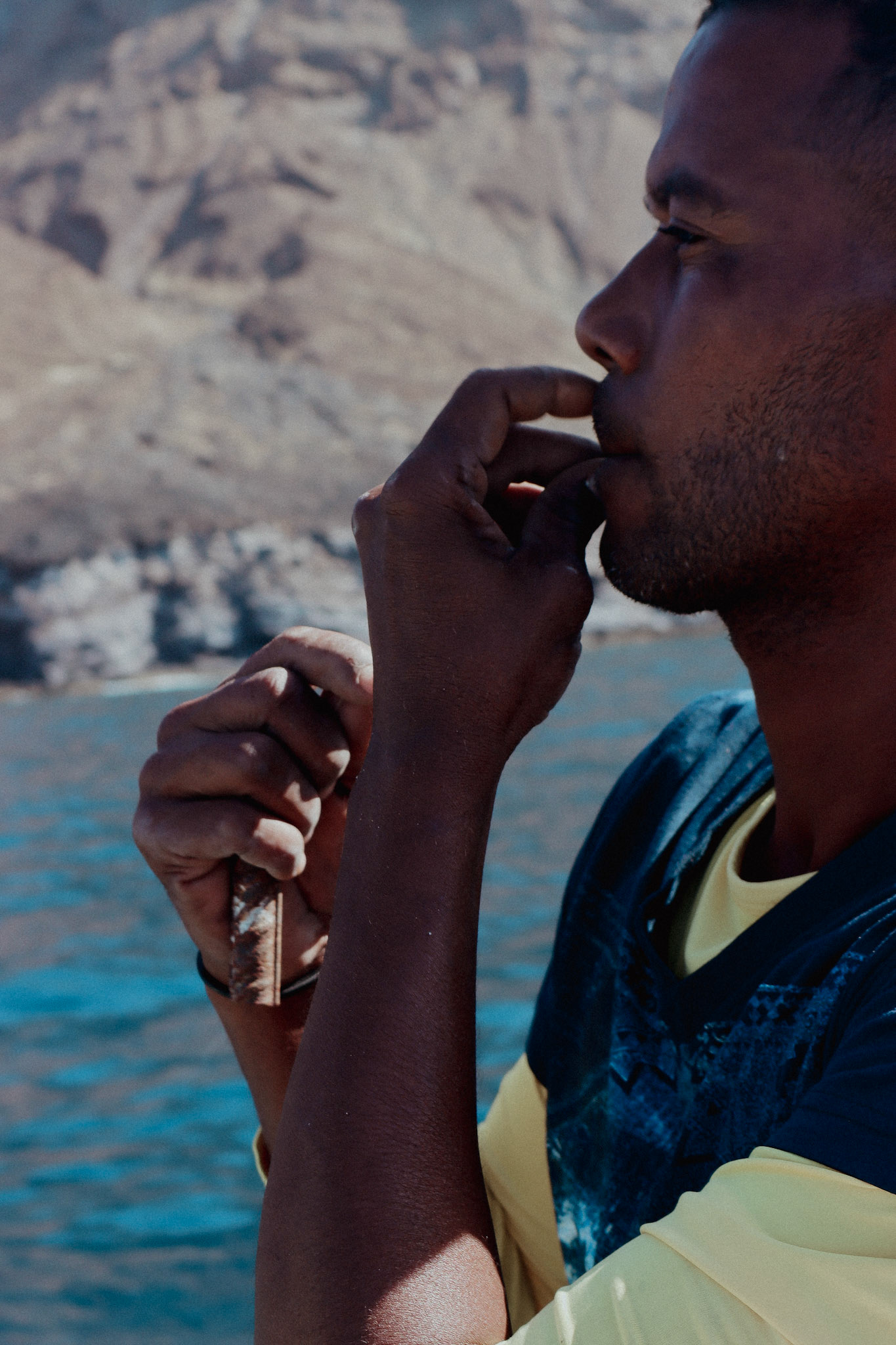
He prepared the material for each of us, with a couple of hooks and pieces of raw tuna. It didn't take the fish more than a minute to bite us.
We landed dozens of garopas and other rockfish. We also had the opportunity to catch some eels, which Nelson and his captain said were delicious.
After several hours of fishing, we returned to the beach with a bucket full of fish, where, along with other fishermen, we would clean all the freshly caught fish. Nelson had a polished technique that he taught us.
We landed dozens of garopas and other rockfish. We also had the opportunity to catch some eels, which Nelson and his captain said were delicious.
After several hours of fishing, we returned to the beach with a bucket full of fish, where, along with other fishermen, we would clean all the freshly caught fish. Nelson had a polished technique that he taught us.
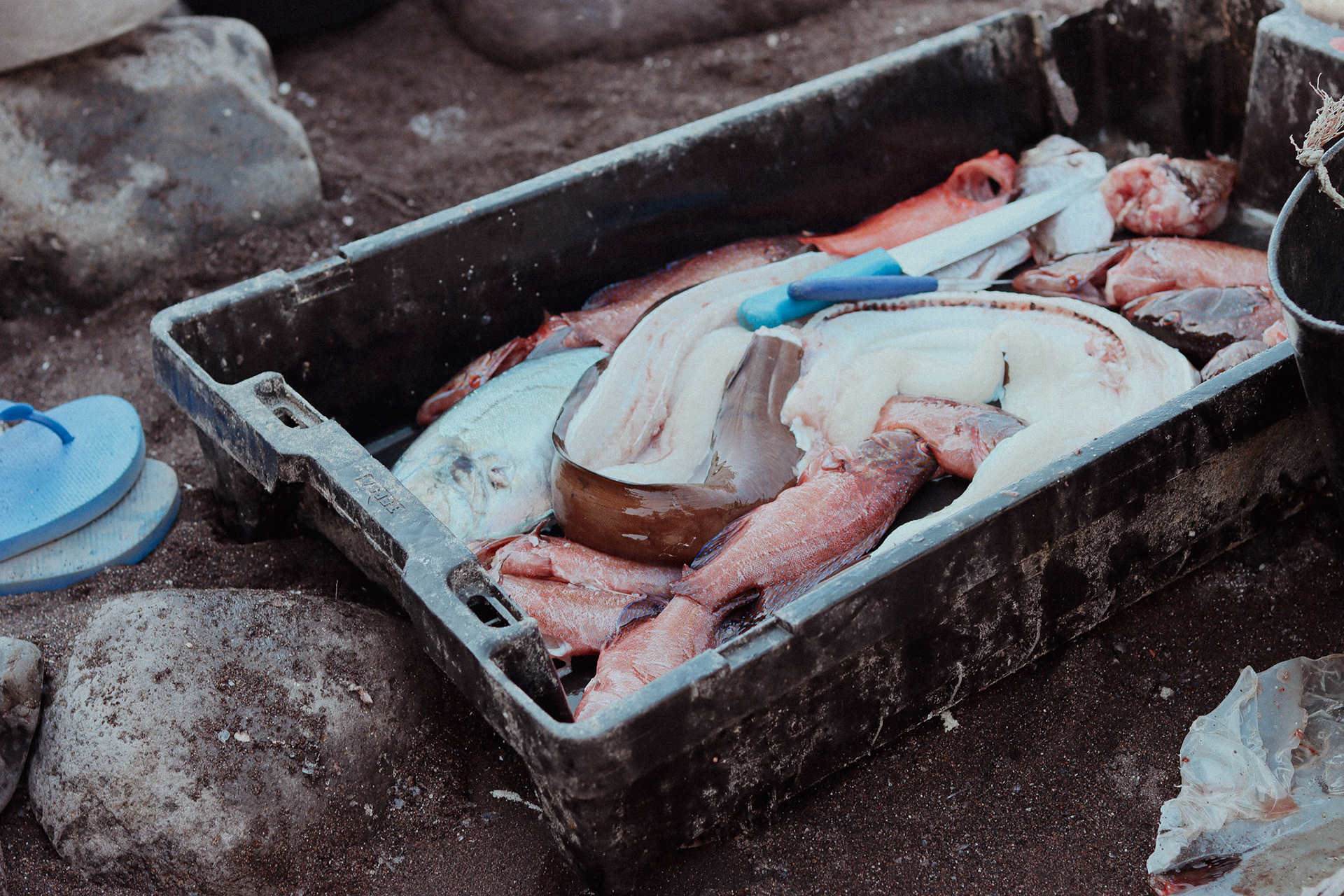
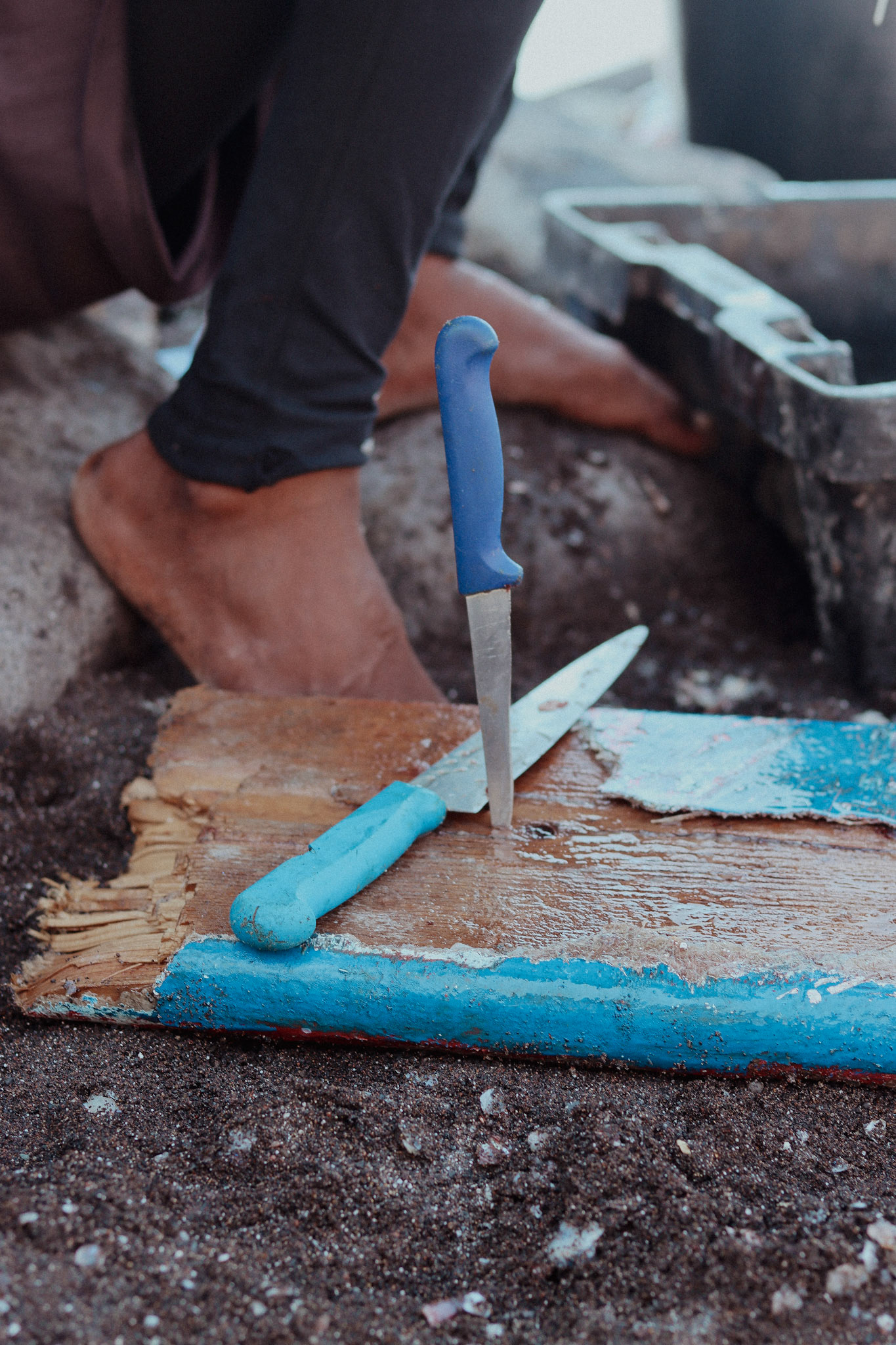
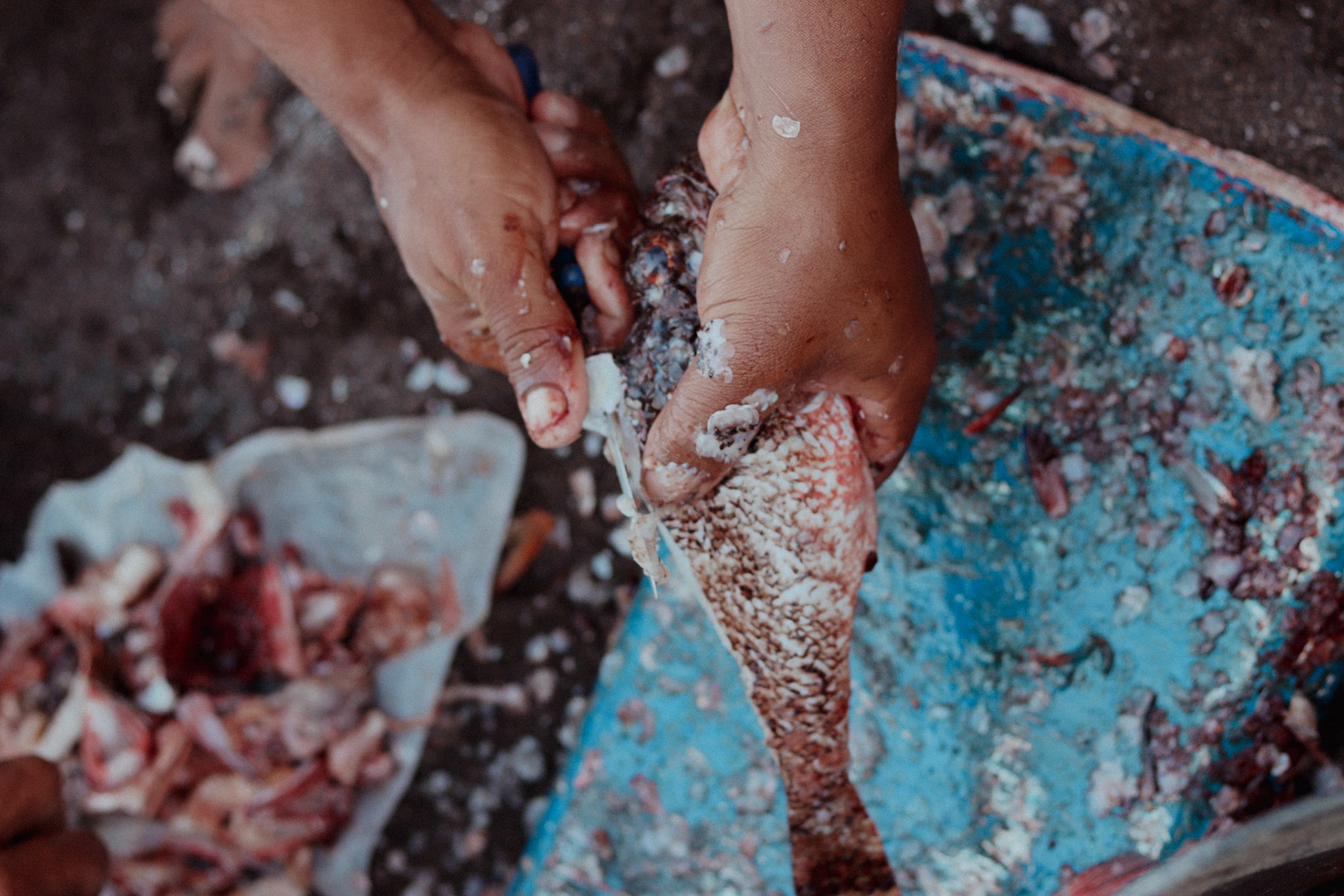
They cleaned all the fish in a matter of minutes and Nelson gave them to his sister-in-law who prepared a delicacy for us.
manuel
and his fishing rod made out of bamboo
On the next island we met Manuel, Manuel taught us another fishing technique: using bamboo as a rod.
One day when Natxo and I were casting the rod from land into the sea, we saw Manuel walking among the rocks and looking for crabs. Manuel would come here every morning to fish with his brother. They are from a village called Praia Blanca and they walk every day for several hours to fish in order to eat and sell.
In this case, Manuel did not fish with his hand but with a rod, to which he hooked a couple of hooks and a sinking sinker. They also used crab as bait.
Manuel and his brother's technique reminded me of that of the percebeiros in Galicia. They would approach the current areas where the waves hit the rocks and there they would cast the rod. As soon as they felt a slight tug, they would pull and pull the fish out.
They would put all the fish on a spear to take them back home.
One day when Natxo and I were casting the rod from land into the sea, we saw Manuel walking among the rocks and looking for crabs. Manuel would come here every morning to fish with his brother. They are from a village called Praia Blanca and they walk every day for several hours to fish in order to eat and sell.
In this case, Manuel did not fish with his hand but with a rod, to which he hooked a couple of hooks and a sinking sinker. They also used crab as bait.
Manuel and his brother's technique reminded me of that of the percebeiros in Galicia. They would approach the current areas where the waves hit the rocks and there they would cast the rod. As soon as they felt a slight tug, they would pull and pull the fish out.
They would put all the fish on a spear to take them back home.
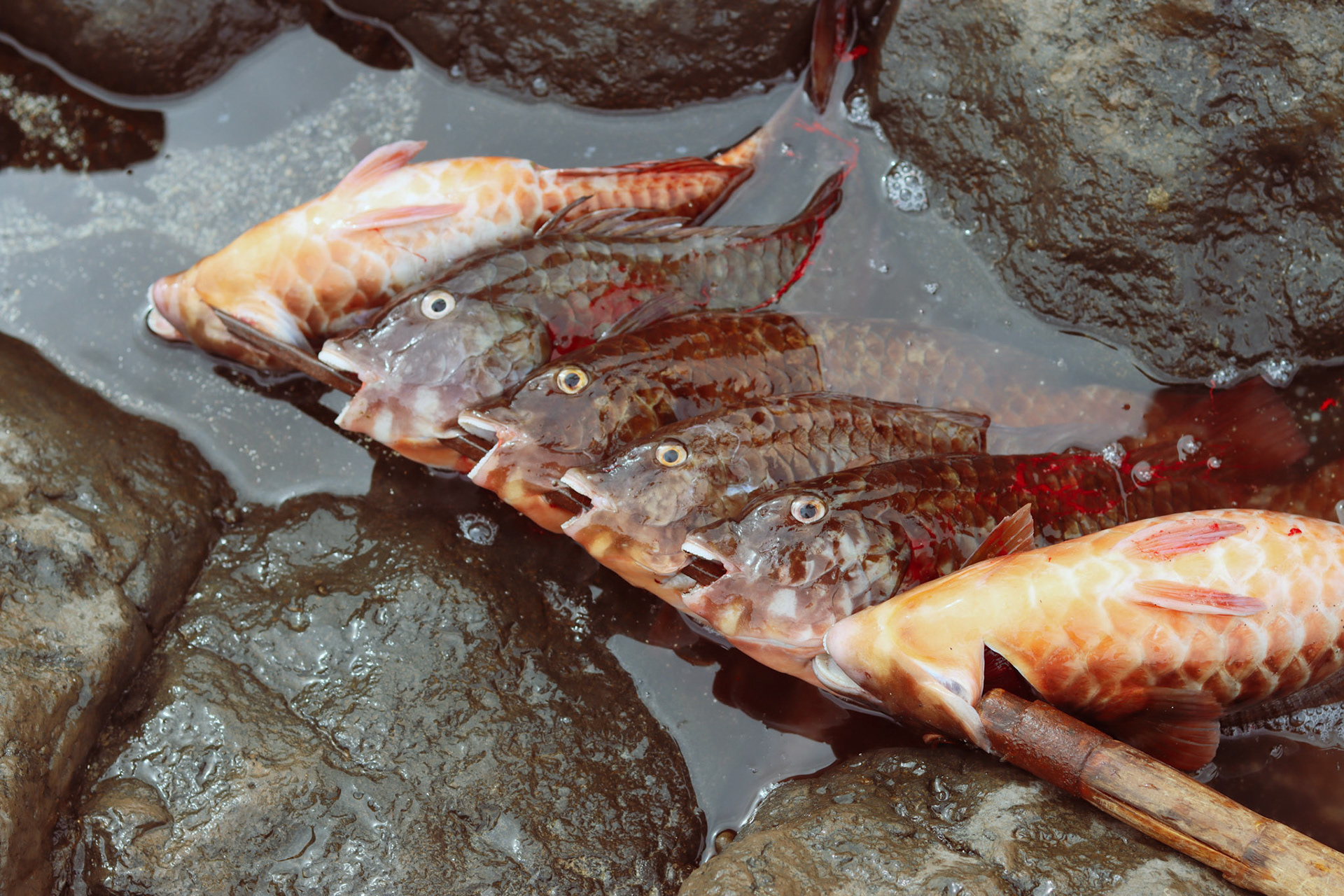
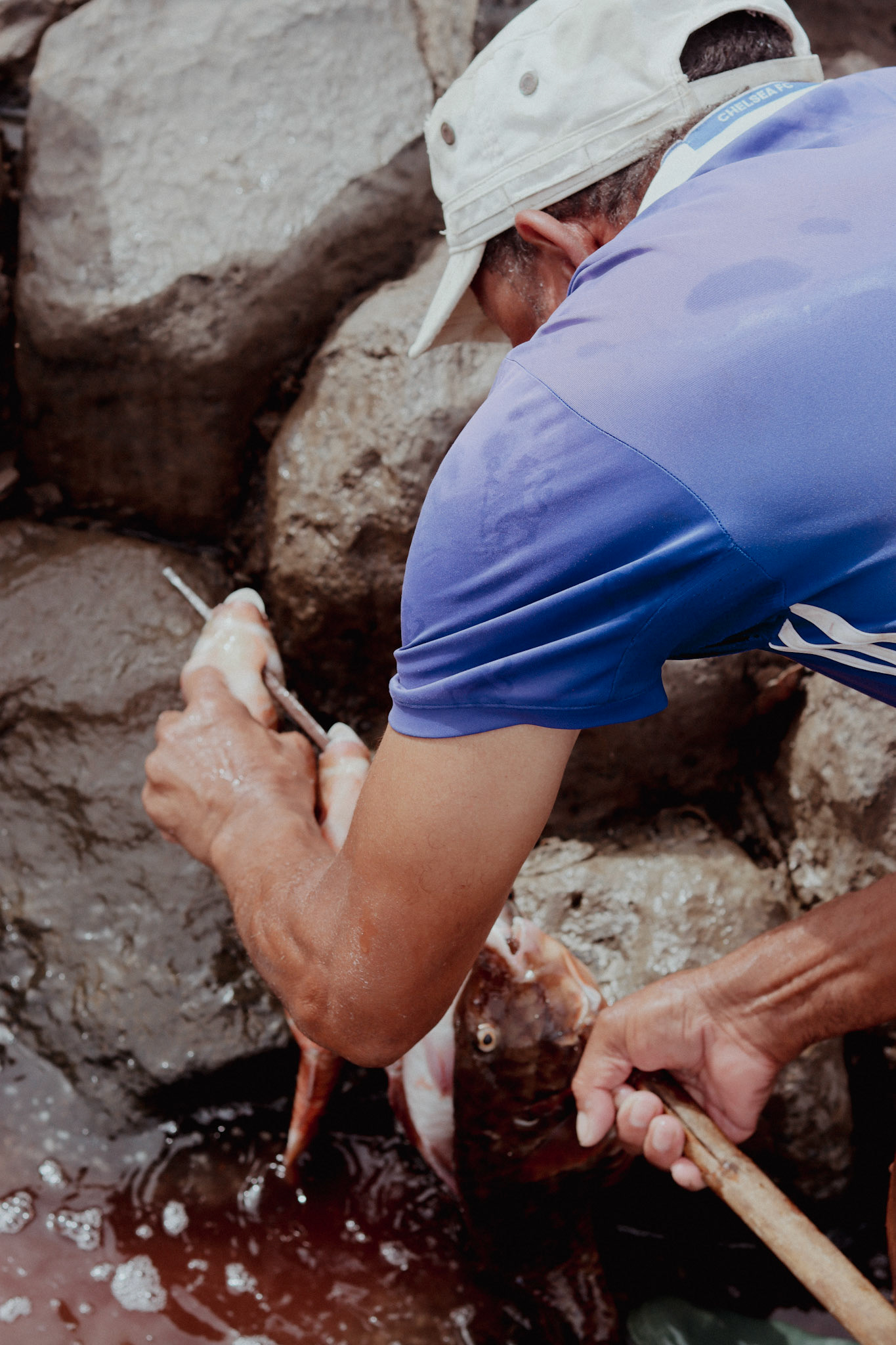
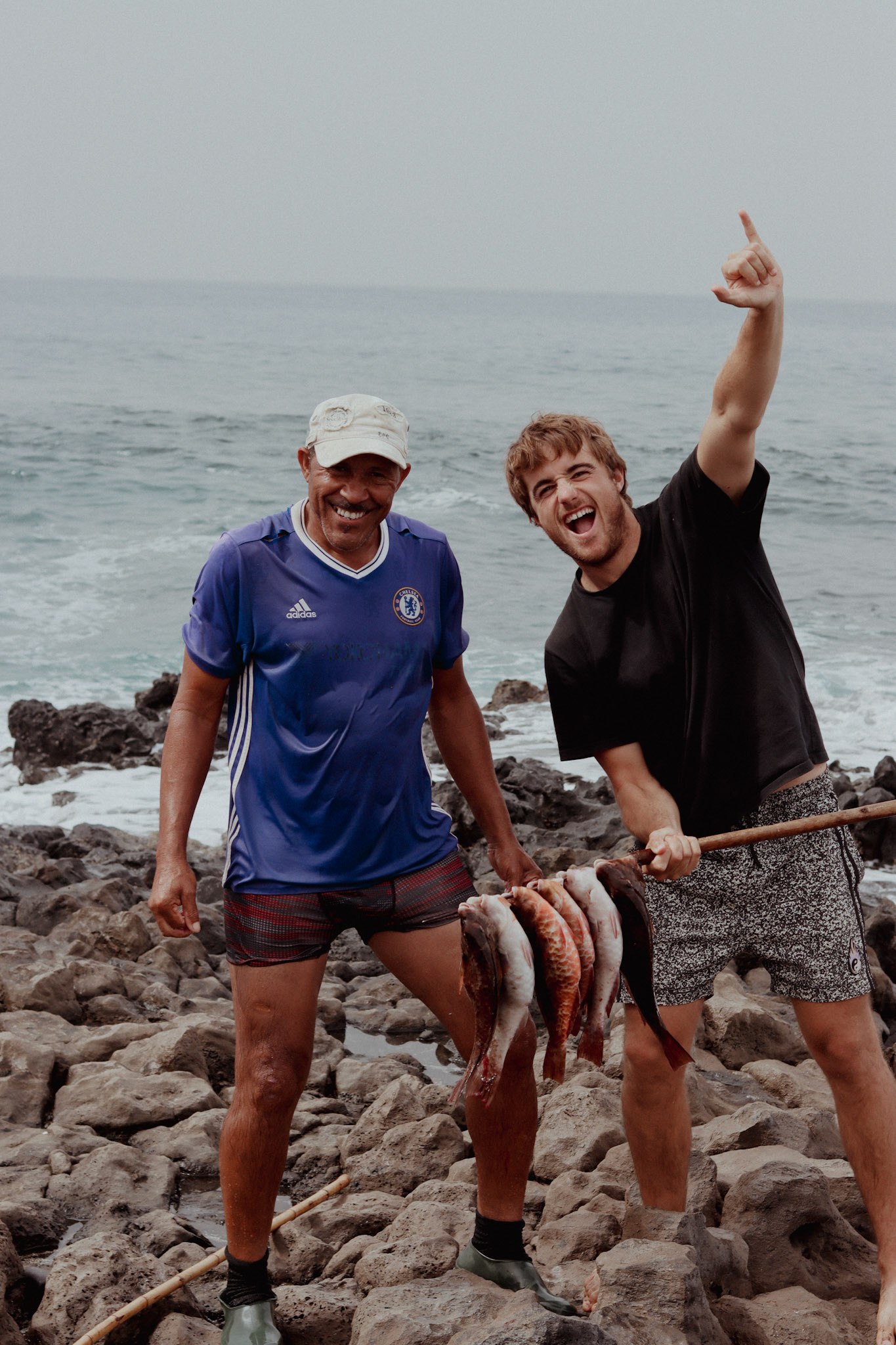
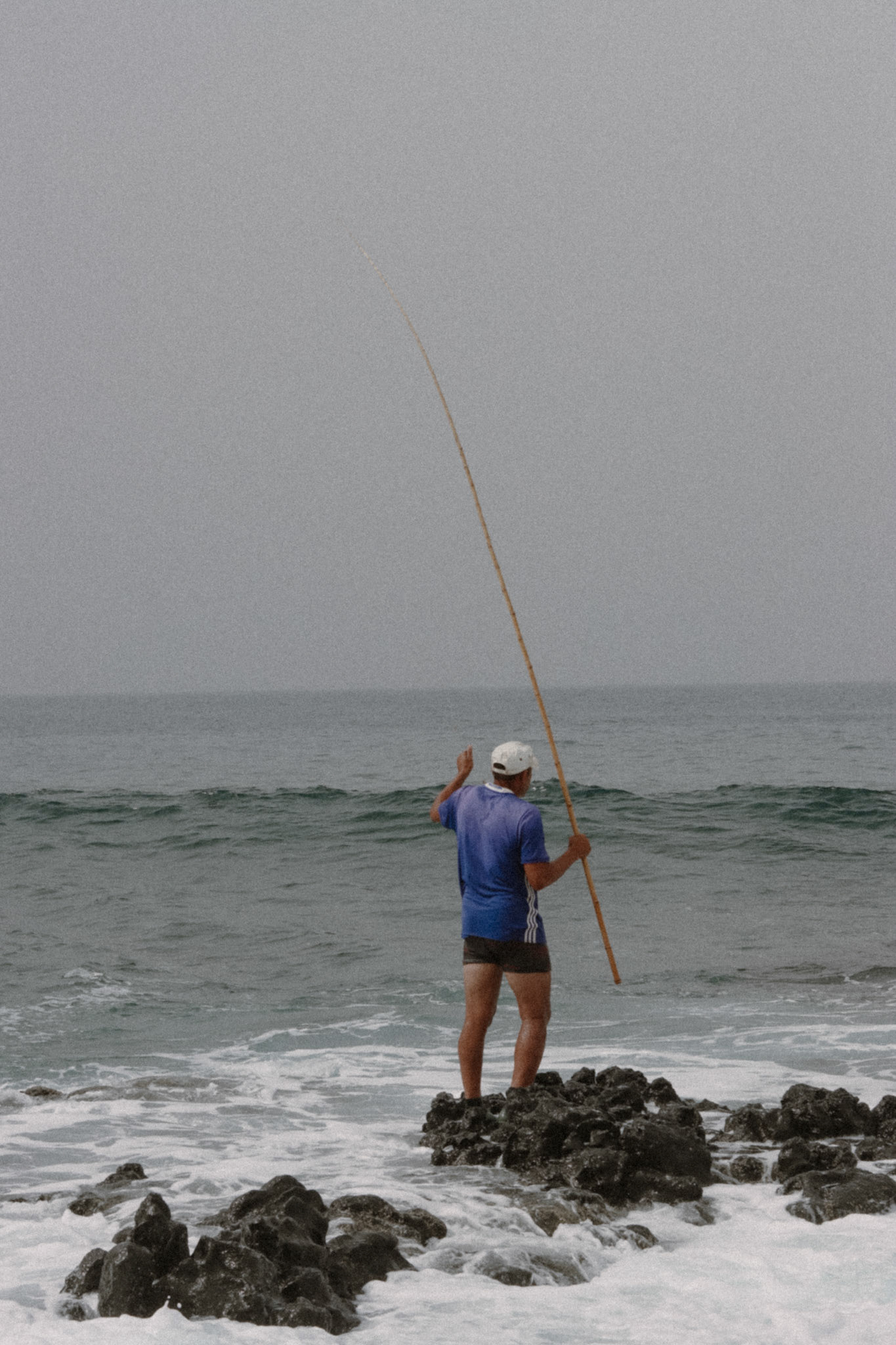
HAMILTON,
the young and experienced
With everything we had learned from Manuel, that same afternoon, we bought all the necessary equipment (hooks and sinkers) and went to the beach to put it into practice. On our way we met Hamilton, a young but very experienced fisherman. He showed up with his white bucket where he was carrying his tackle as well as a raw fish that we would use as bait.
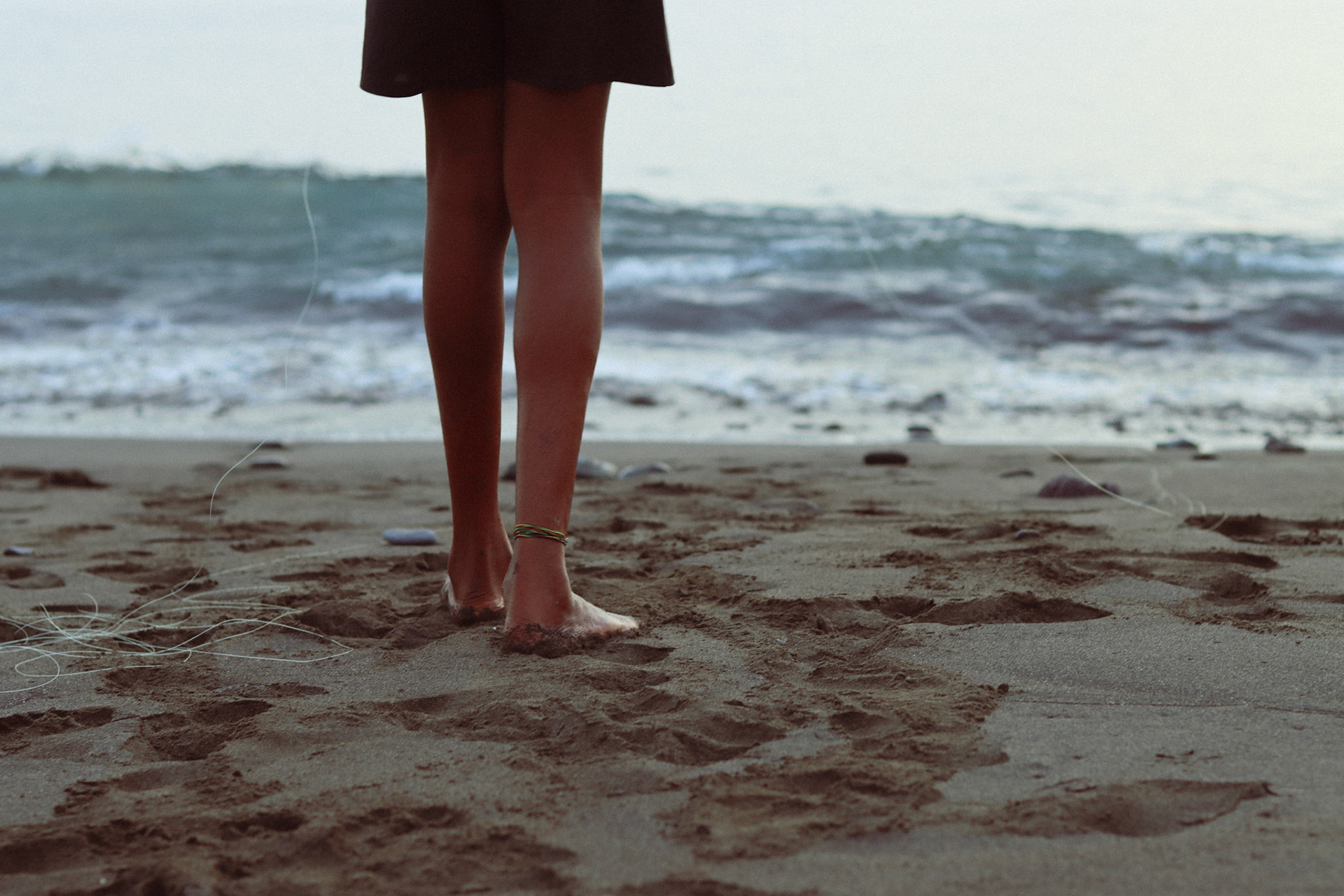
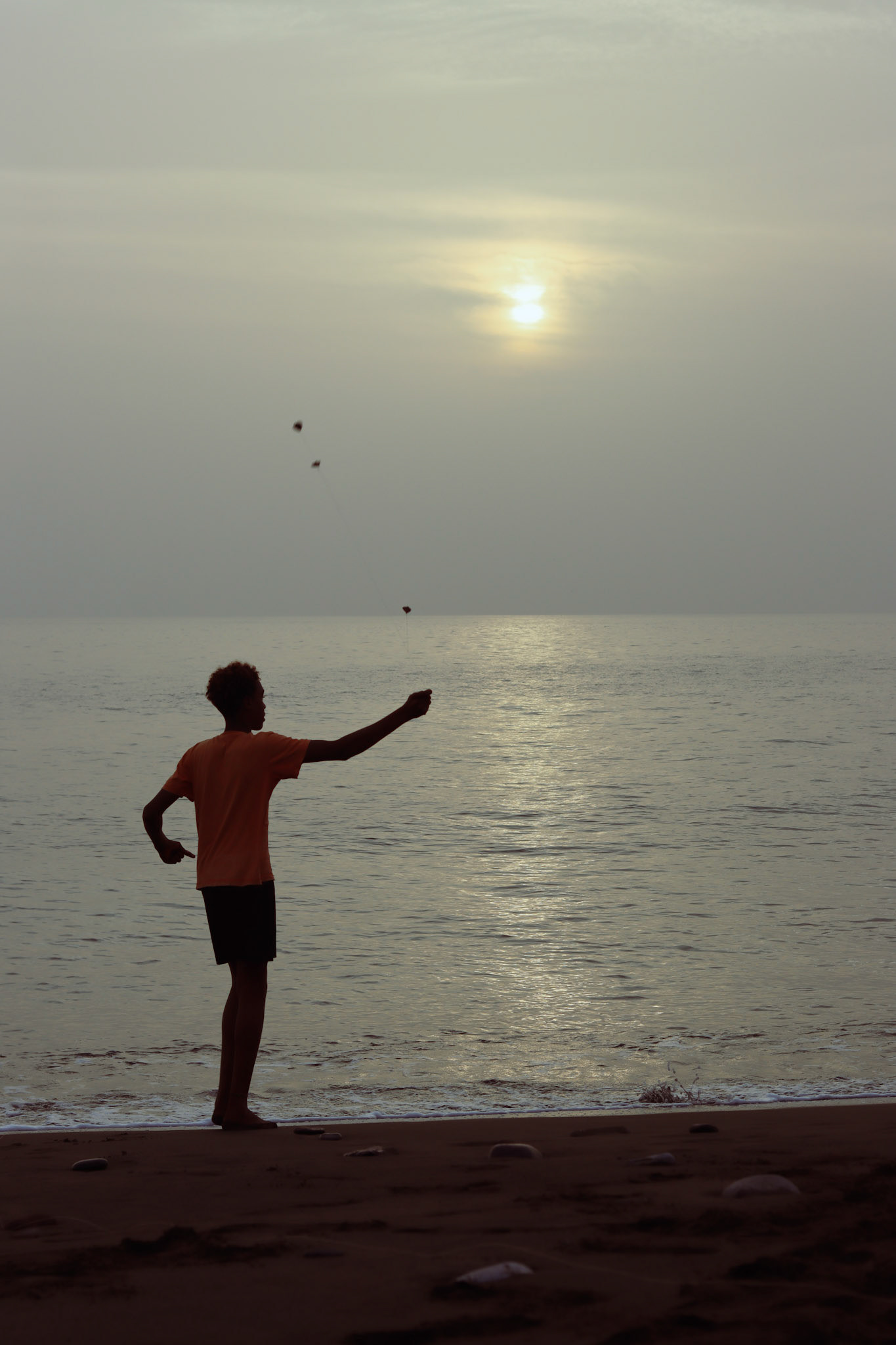
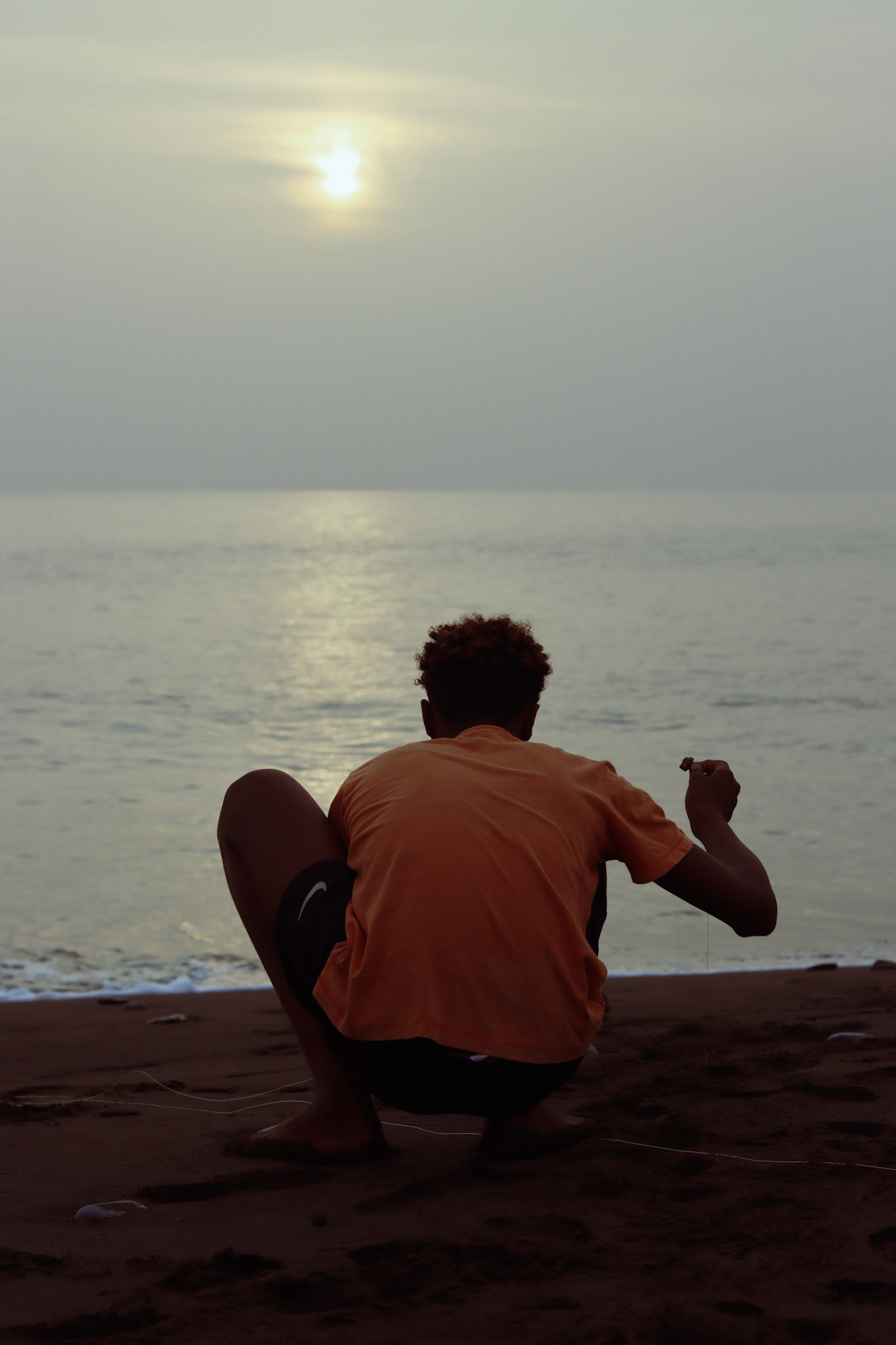
He did not use a rod, just his hand, and he handled perfectly the technique of the pita and the lead. He cast and retrieved in a smooth and elegant way.
We cast a couple of times from the beach and landed small fish that we returned to the sea. From the rocks and using the lead and bait that Hamilton recommended, we managed to land a couple of bigger fish.
We cast a couple of times from the beach and landed small fish that we returned to the sea. From the rocks and using the lead and bait that Hamilton recommended, we managed to land a couple of bigger fish.
marcial
the last supper
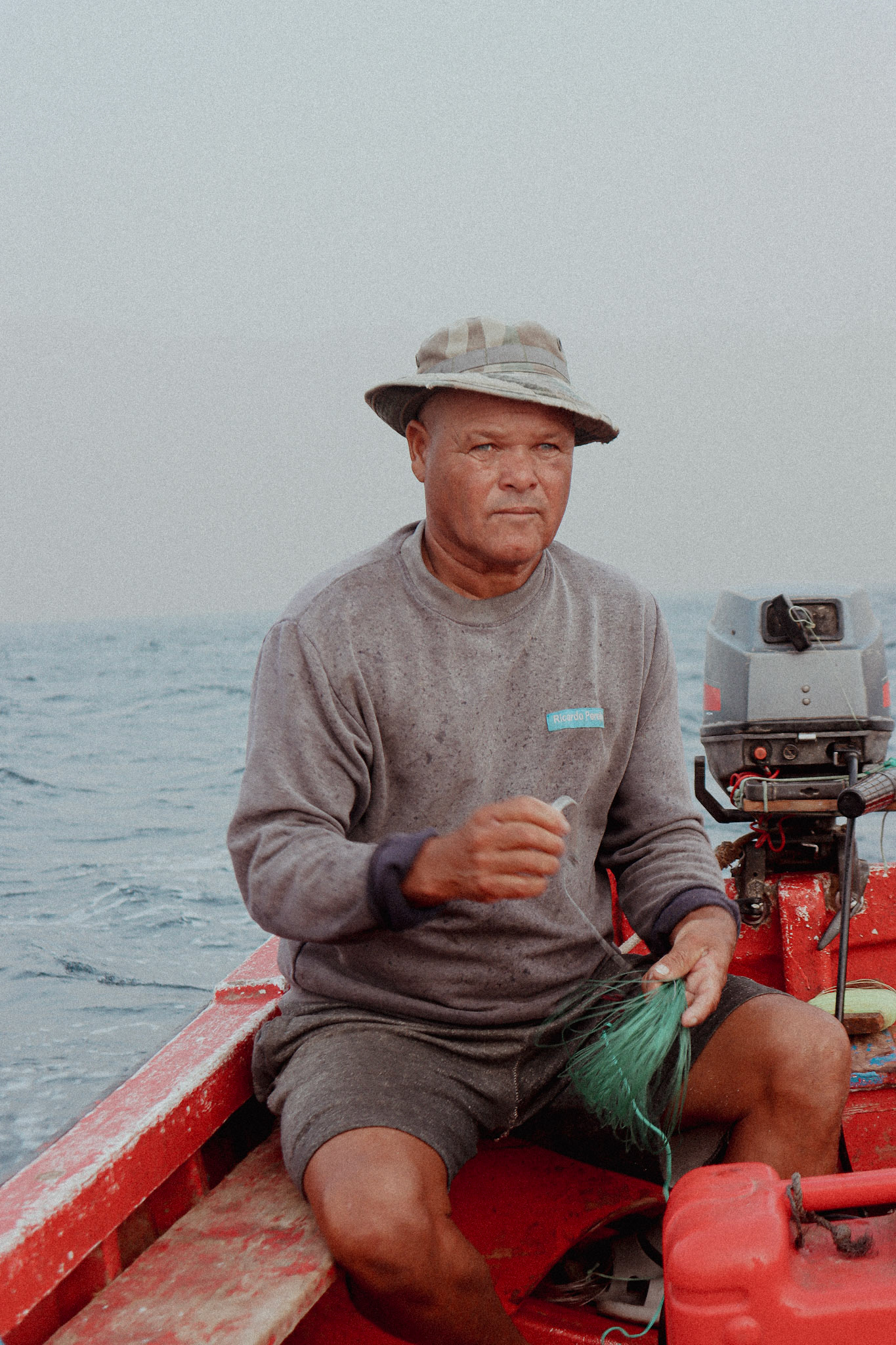
On our way home, we stopped in Sao Pedro, a small fishing village where they are already feeling the scarcity of fish and the impact of tourism.
After a month of learning, we wanted to challenge ourselves and go out to catch a bigger fish.
After a month of learning, we wanted to challenge ourselves and go out to catch a bigger fish.
In this town, fishermen go out to sea every morning with their nets. They spend about 9 hours fishing and return to the beach where they land the day's catch. They keep part of the fish to eat, and the rest they put in boxes, load it into public vans and take it to the capital, just 10 minutes away from the village. There they sell it in the Mindelo market. The men are in charge of going out to fish and the women are in charge of selling.
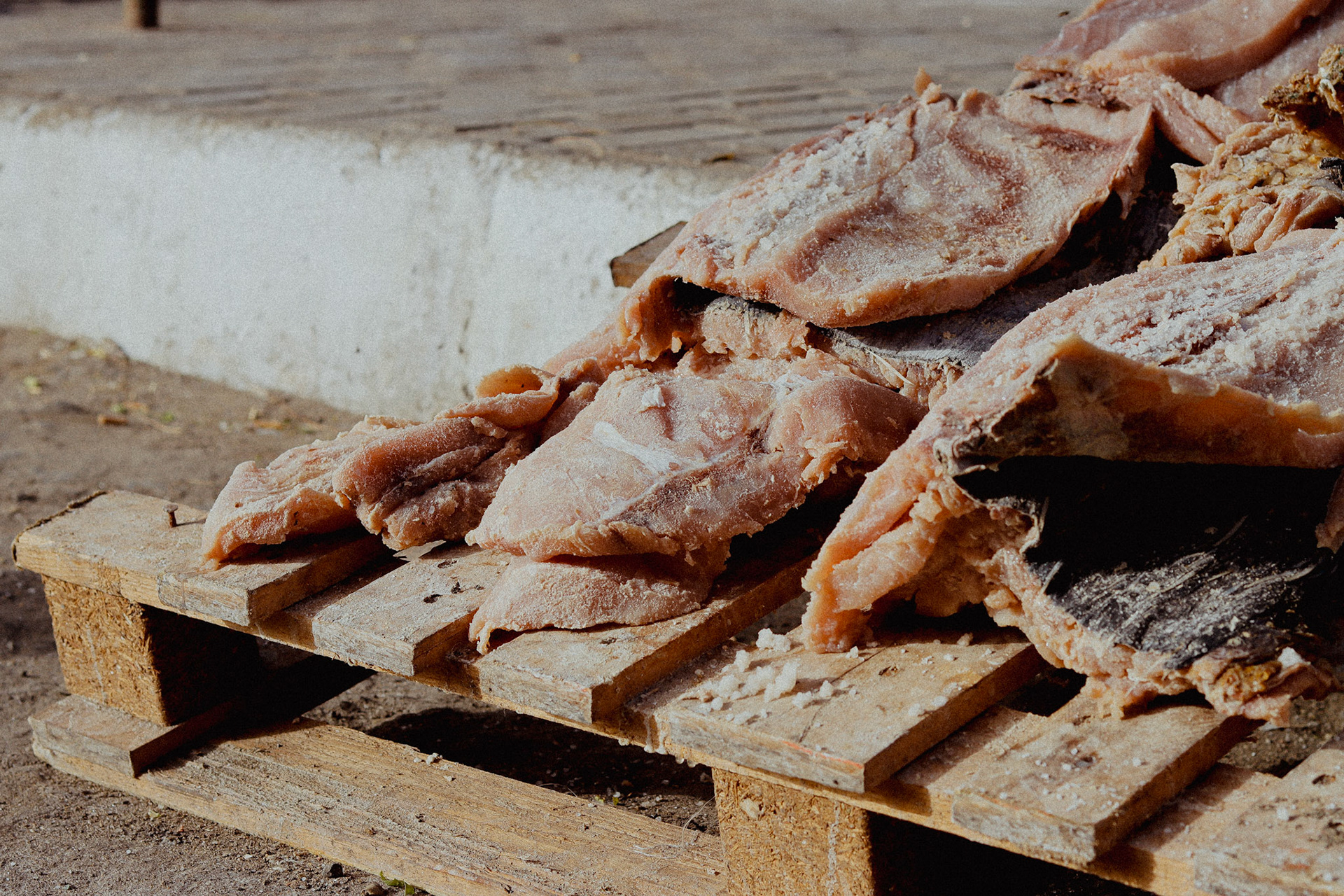
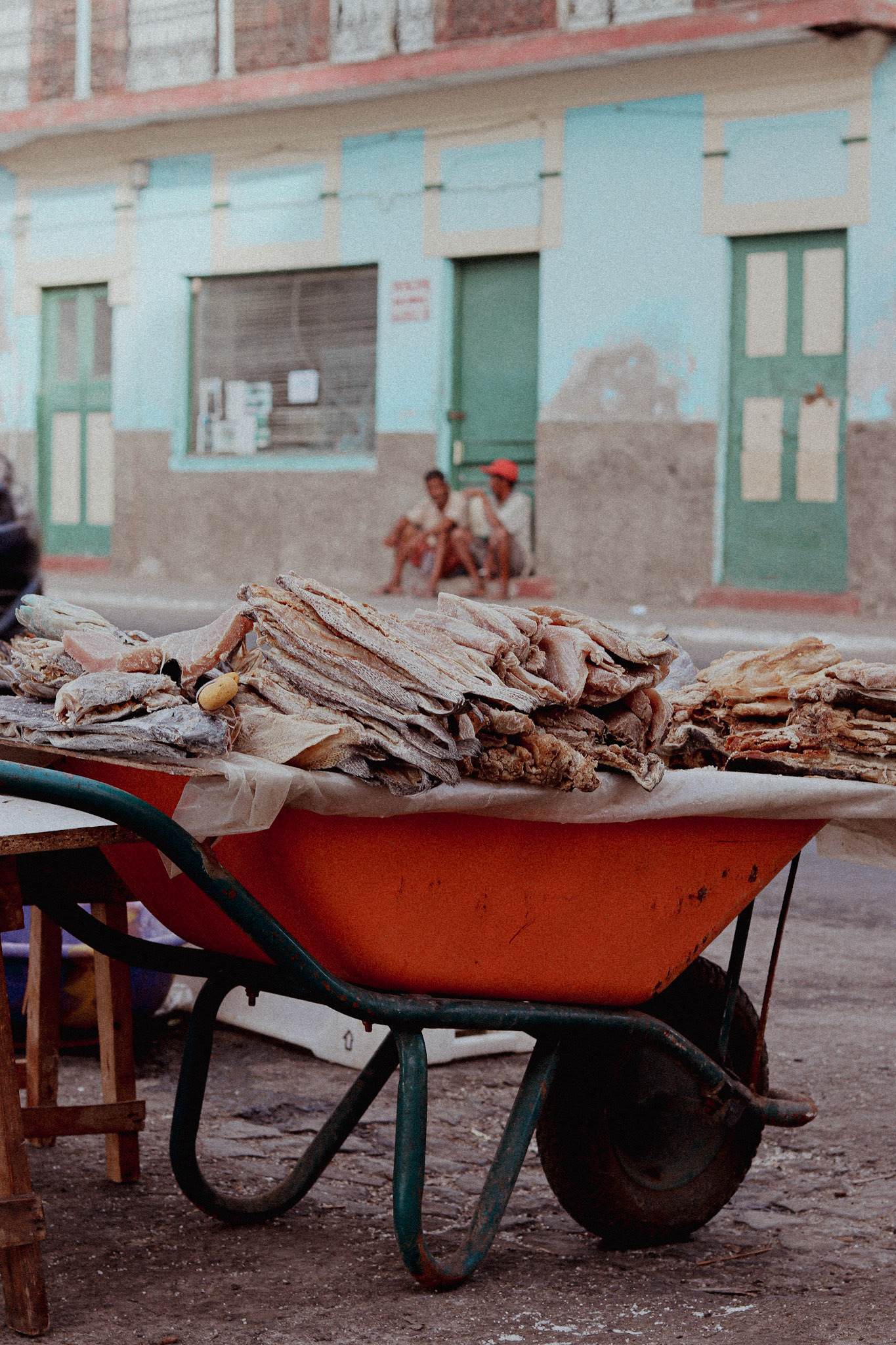
We woke up at 6.00 am and went down to the beach to see if any fisherman would take us on their boat. We heard about how they fished for tuna, dorada, dorado, and mahi mahi mahi, and we wanted to complete our learning experience by going out with some local fisherman to see how they caught these bigger fish.
After talking to several people in town, and waiting and waiting and waiting and waiting, we met Marcial, aka Ruso, the best fisherman in town and one of the most experienced in the area.
Marcial had been fishing all his life and had traveled the entire African coastline working aboard Spanish fishing boats.
After talking to several people in town, and waiting and waiting and waiting and waiting, we met Marcial, aka Ruso, the best fisherman in town and one of the most experienced in the area.
Marcial had been fishing all his life and had traveled the entire African coastline working aboard Spanish fishing boats.
natxo, excited, prepares his fishing rod in ruso´s boat.
Ruso prepared the engine, gasoline and bait and we headed out to sea. Ruso, like the rest of fishermen, did not fish with a rod, he has always fished by hand and that is what he enjoys doing, he says that you feel the fish better and it is more beautiful. His hands were full of scars from the scratches of the pita. He also used raw fish as bait.
We went out very close to the coast and Natxo caught the first sea bream, after 10 minutes fighting with it we managed to get it on the boat.
Ruso told us that although there are more fish here than in Europe, the number of fish has decreased significantly, before they would go out a few meters away and catch giant tuna, now if you catch one you are very lucky. "There is less and less fish and therefore less work".
We went out very close to the coast and Natxo caught the first sea bream, after 10 minutes fighting with it we managed to get it on the boat.
Ruso told us that although there are more fish here than in Europe, the number of fish has decreased significantly, before they would go out a few meters away and catch giant tuna, now if you catch one you are very lucky. "There is less and less fish and therefore less work".
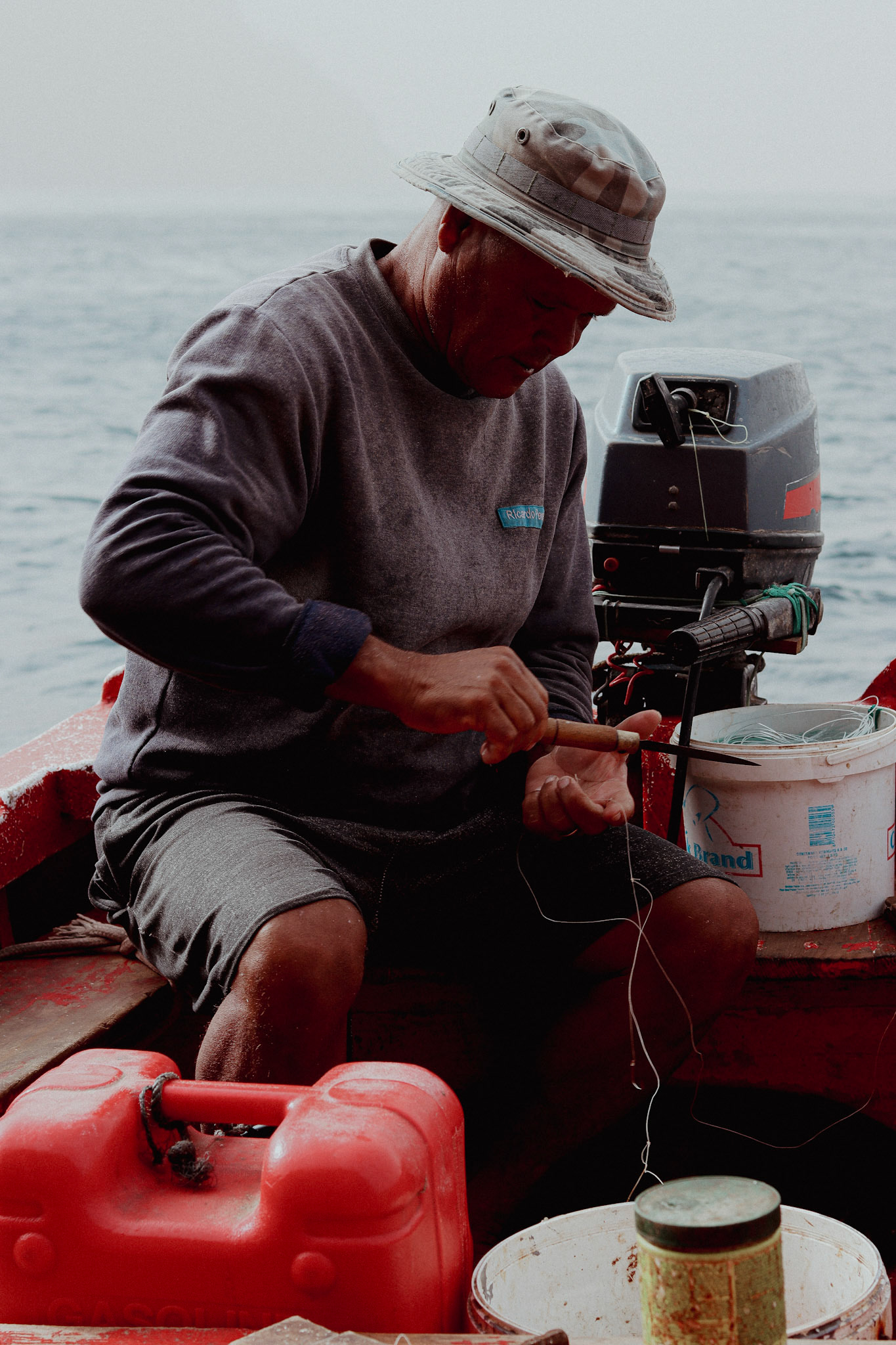
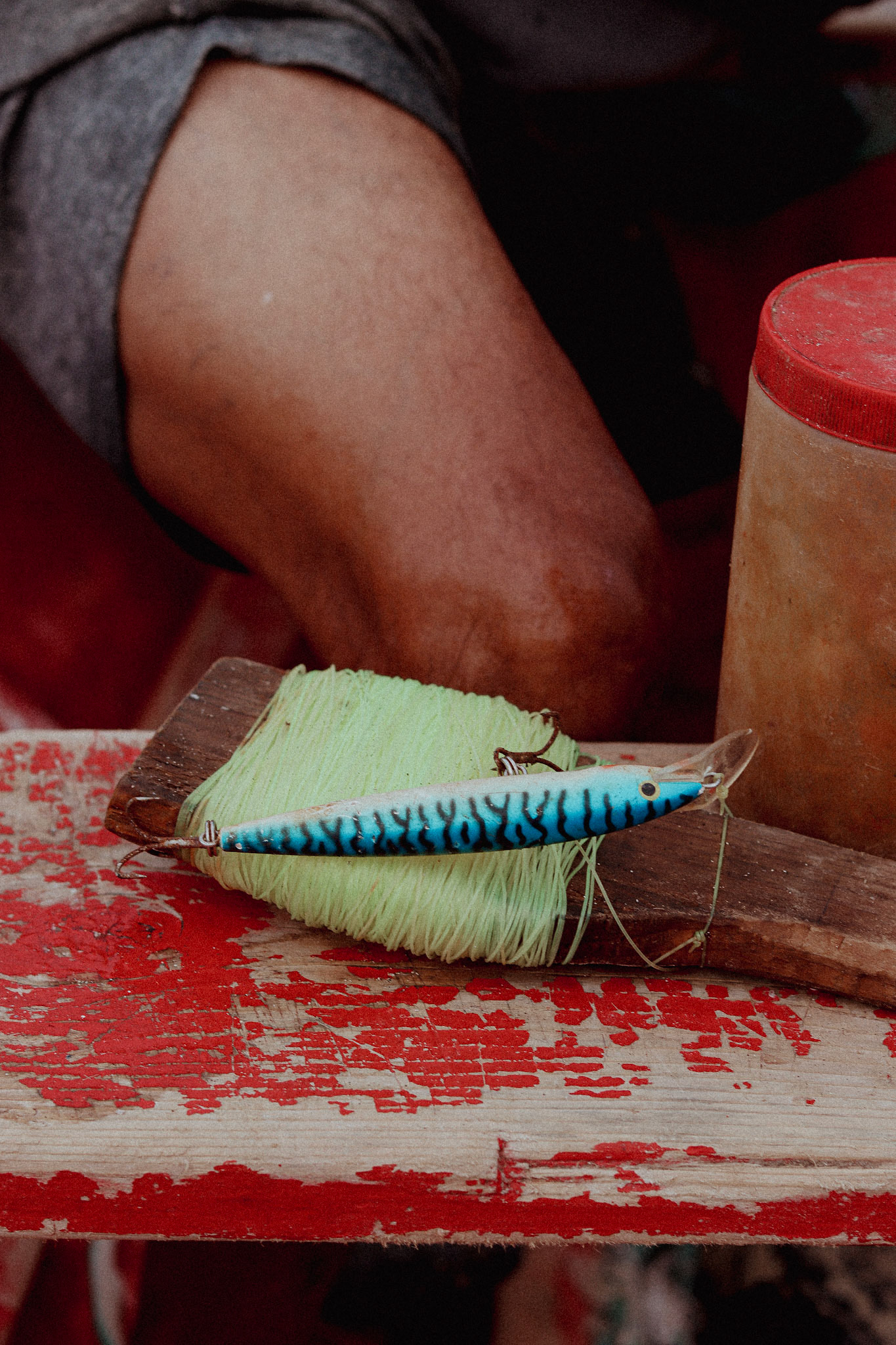
After several hours of sailing we met his son who was spearfishing. He got on the boat and showed us how many fish he had caught. He was about 30 years old and fishing is his passion. He was now on vacation visiting his family as he lives most of the year in Madeira and fishes on board of Spanish vessels. He was lucky enough to go to live in Lisbon with his aunt and there he got this job. He is very connected to the sea and loves his job. He confessed to us that if the big fishing boats continue fishing at these quantities, he believes that the sea will run out of fish in 10 years.
He had to leave his village because due to the decrease of fish, there is no more work.
Before going back to the beach, we caught a couple of barracudas and a smoregal. Ruso invited us to eat at his house to celebrate. The fish we didn't eat, his son took it to the market to sell it. At the family home we met his wife, Maria, who cooked us one of the best dishes I have ever tasted in my life, while Ruso shared his fishing experiences and his vision of how the new fishing dynamics have changed his life and that of his people.
He had to leave his village because due to the decrease of fish, there is no more work.
Before going back to the beach, we caught a couple of barracudas and a smoregal. Ruso invited us to eat at his house to celebrate. The fish we didn't eat, his son took it to the market to sell it. At the family home we met his wife, Maria, who cooked us one of the best dishes I have ever tasted in my life, while Ruso shared his fishing experiences and his vision of how the new fishing dynamics have changed his life and that of his people.
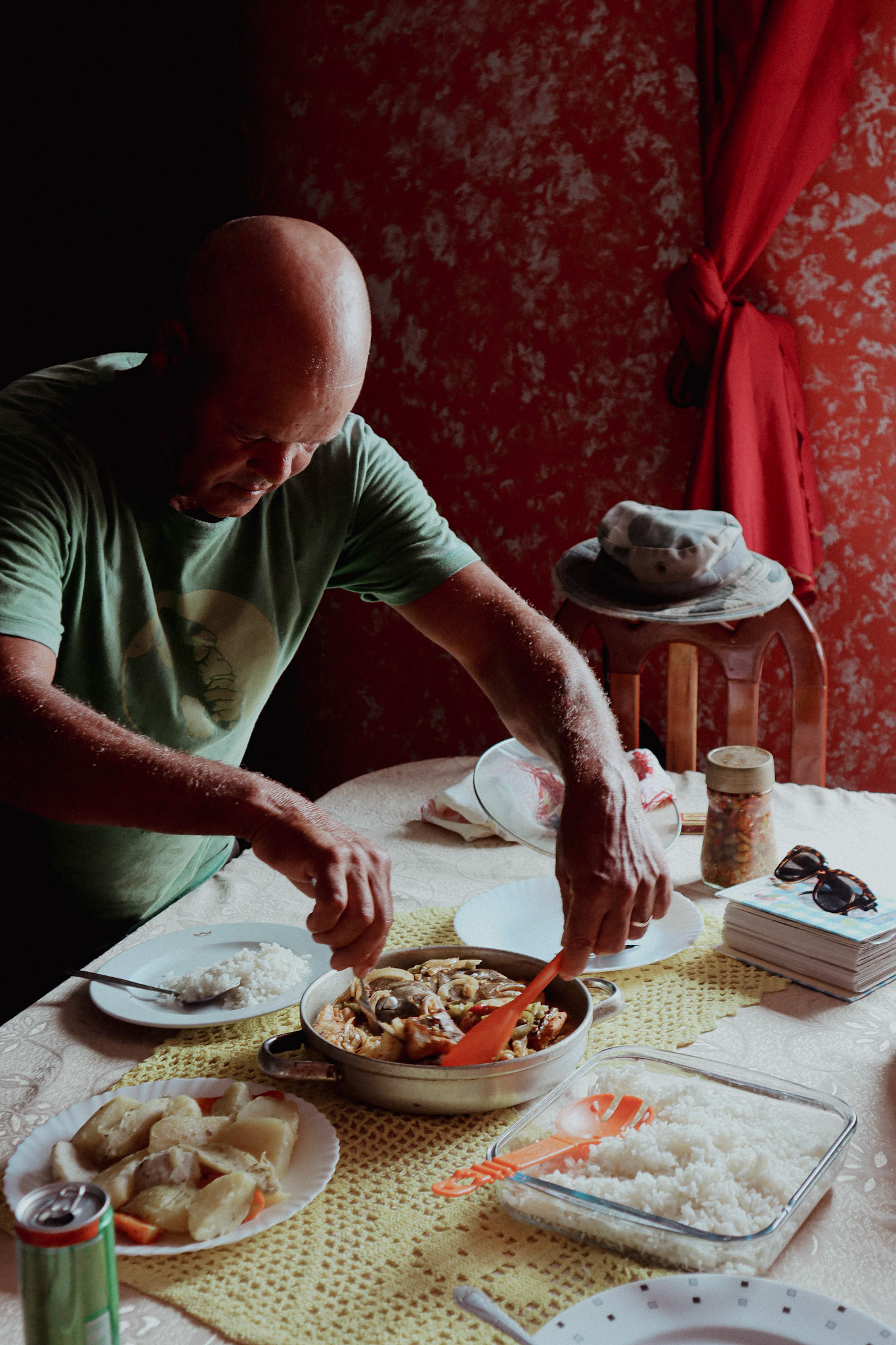
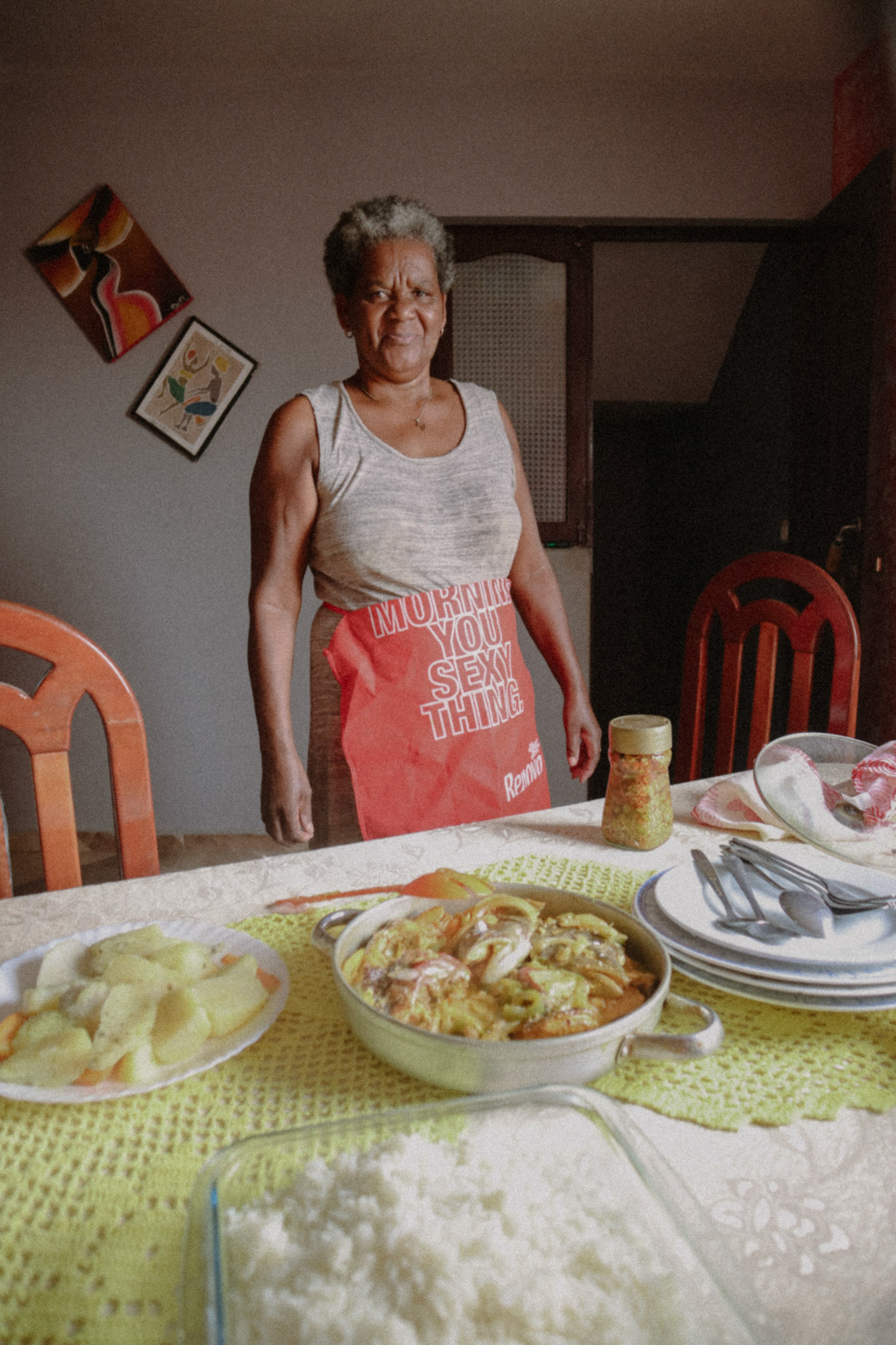
galery
